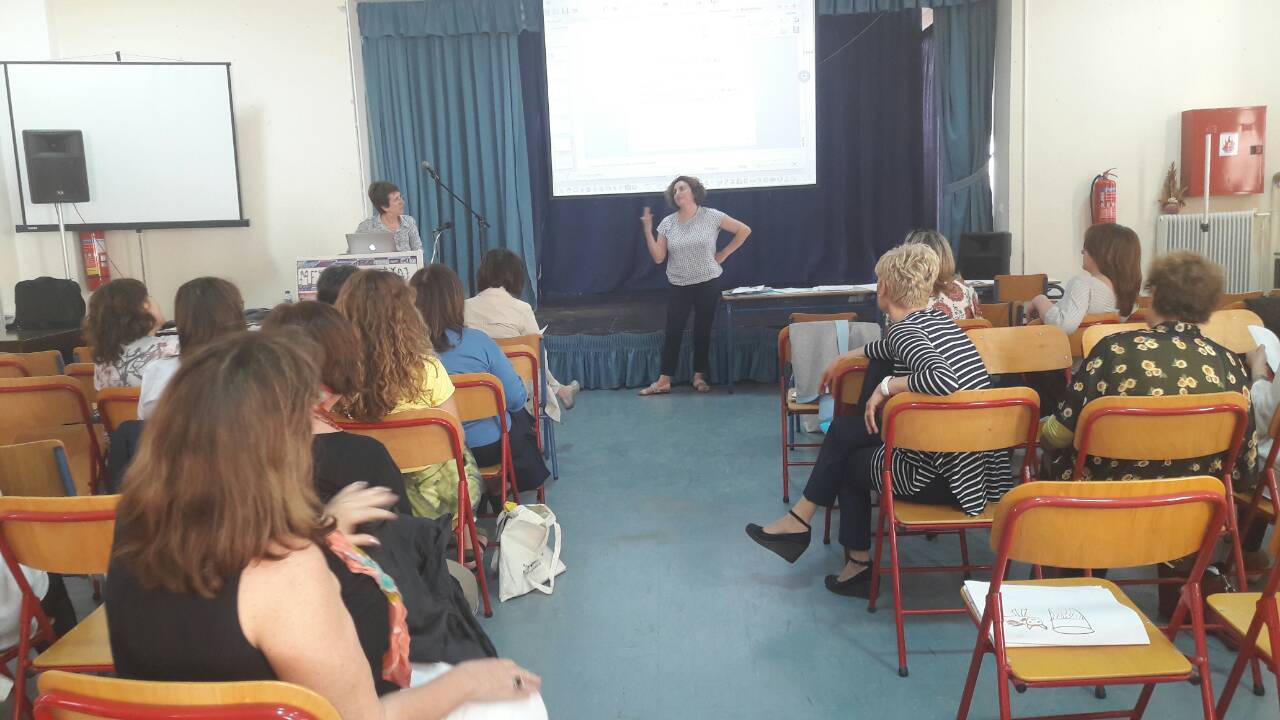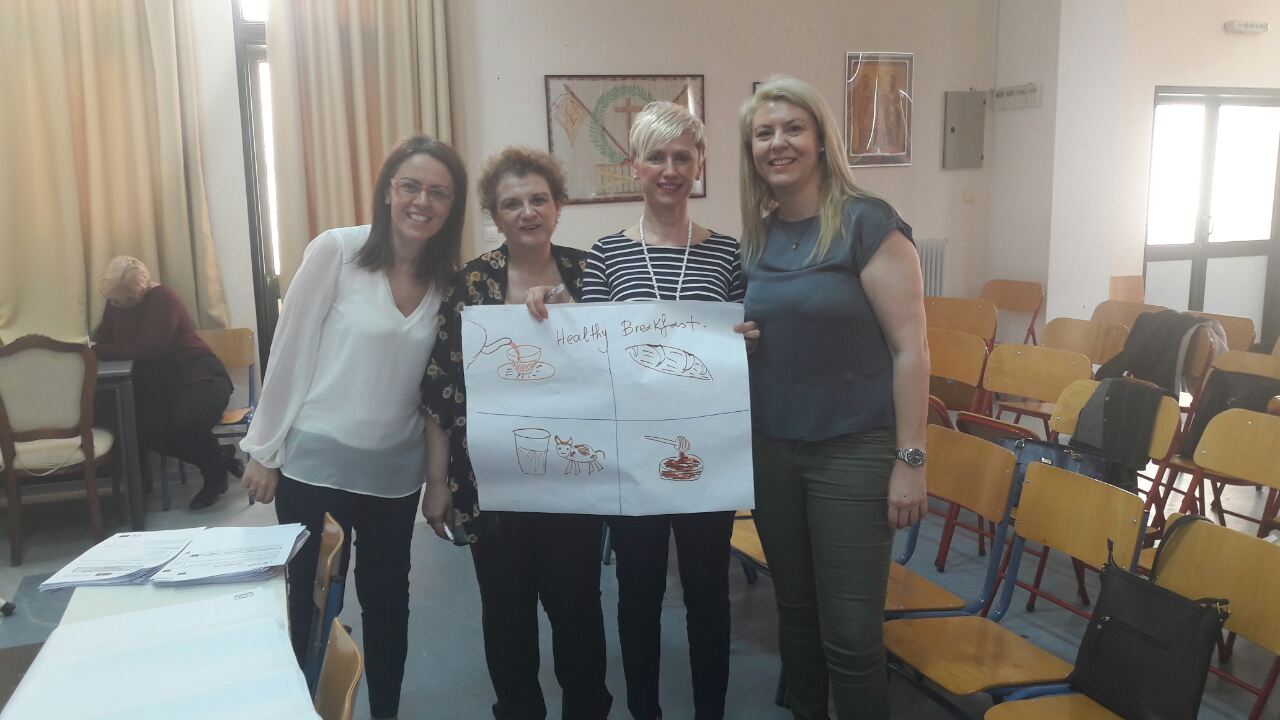News
12.08.2025
DECODE network meeting: discussing the importance of developing competences for democratic culture (CDC) in young learners through language education
Four DECODE project team members and their ECML consultant met with 19 teacher educators, teachers and researchers at the network meeting which was held at the ECML in Graz, Austria, on 24-25 June 2025. The participants were from Belgium, Bosnia and Herzegovina, Croatia, Germany, Greece, Ireland, North Macedonia, Slovenia, Spain, Sweden, and Switzerland.
During the two-day meeting, participants explored how to foster competences for democratic culture (CDC) in young learners through language education. On the first day, the team introduced the CDC model and discussed challenges in language education, the role of CEFR tools, and principles for developing CDC-related materials. A template for CDC materials was presented, and participants shared best practices and identified teachers’ needs. On the second day, they collaborated in groups to create and present initial CDC teaching materials, offering feedback on the template. Five of the network participants also shared highly interesting testimonials (see below) about CDC’s relevance in their professional contexts and the value of the DECODE project. The meeting strengthened understanding of CDC and highlighted the importance of collaboration for successful implementation of the DECODE project.
Authors: Emina Jelešković, Martina Kramar
- ECML project website “Developing competences for democratic culture for young learners through language education” (2024-26) (available in English and German): www.ecml.at/decode
- Video testimonials of network participants from Bosnia and Herzegovina, Greece, German, Ireland, and Sweden: see Recent developments
09.05.2025
ECML training and consultancy "Beyond CLIL: Pluriliteracies teaching for deeper learning" in Korinthos, Greece – promoting meaningful learning experiences for students
Τhe Training and consultancy event "Beyond CLIL: Pluriliteracies teaching for deeper learning", was organised by the European Centre for Modern Languages (ECML) of the Council of Europe in cooperation with the Regional Directorate of Primary and Secondary Education of Peloponnese and the Ministry of Education, Sports and Religious Affairs of Greece.
It took place on 3-4 April 2025 in Korinthos, Greece and was attended by 35 participants: 17 education advisors of various subjects and 18 school principals of pre-school, primary and secondary level school units.
The principles of the CLIL approach and the Deep Learning procedures were introduced by the ECML expert, Kevin Schuck, who involved the mixed group of participants in a series of hands-on activities conducted in a creative and cooperative climate.
The event closed with the participants’ commitment to participate in dissemination events with the aim of creating new material and building a larger network. It is hoped that this ECML Training and consultancy event marks the beginning of future collaborations and similar participatory training activities for educators who strive to enhance their pedagogical practices and promote a more meaningful and profound learning experience for their students.
Dr Urania Sarri, local organiser
21.11.2024
National training workshop: Supporting multilingual classrooms (17-18 October 2024, Alexandroupolis, Greece)
Local organiser: Anastasia Panagiotidou, Directorate of Secondary Education of Evros
ECML experts: Catherine Carré-Karlinger (Austria), Katja Schnitzer (Germany)
Participants: 32 (foreign language teachers, teachers of the language of schooling, principals of school units, school advisers, regional education quality supervisor)
The Secondary Education Directorate of Evros, in cooperation with the Ministry of Education, Religious Affairs and Sports and the European Centre for Modern Languages (ECML) of the Council of Europe, successfully organised the two-day training workshop entitled Supporting Multilingual Classrooms, which took place on 17 and 18 October 2024 in Alexandroupolis, Greece.
Thirty-two selected educators (teachers, principals of school units and school advisers) in primary and secondary education took part in the workshop. The impressive level of participation demonstrated the need for ongoing training in this area and the desire of educators to enhance their multilingual and intercultural skills.
The event also involved representatives from the religious, military, and political spheres. Attending online from the Ministry of Education, Religious Affairs and Sports, the Deputy Minister of Education, Mrs. Zeta Makri, and Mr. Panagiotis Passas, the Head of the General Directorate for International and European Affairs, Education for Hellenic Diaspora and Intercultural Education welcomed the participants.
The moderators of the European Centre for Modern Languages, Catherine Carré-Karlinger and Katja Schnitzer, provided the participants with a rich and focused programme, aiming to help them:
- improve their language teaching
- develop multilingual and intercultural skills
- address the diversity of the student population
- create collaborative networks
The workshop provided an excellent opportunity for teachers to renew their knowledge and exchange useful experiences.
29.03.2022
“Quality education in Romani for Europe”: QualiRom online training in Greece (4 and 11 March 2022, Larissa)
Local organisation: Ms Aikaterini Karagiorgou, Head of the Directorate of Primary Education of Larissa, Thessaly, Greece, Larissa, in cooperation with the Greek Ministry of Education and Religious Affairs
Participants: 35 kindergarten and primary school teachers, head teachers, representatives of the Greek Ministry of Education and Religious Affairs and the Institute of Educational Policy
The “Quality Education in Romani for Europe (QualiRom)” workshop took place as an online event in Larissa, Greece on 4th and 11th March 2022. The training was organised by the European Centre for Modern Languages (ECML) of the Council of Europe and the Directorate of Primary Education of Larissa in cooperation with the Greek Ministry of Education and Religious Affairs. Thirty-five pre-school and primary school teachers, head teachers, representatives of the Institute of Educational Policy and the Greek Ministry of Education and Religious Affairs participated in the event. The trainers were the coordinator of the ECML QualiRom expert team, Prof. David Little (Trinity College, Dublin, Ireland) and Ján Hero (Slovak Government Plenipotentiary for Romani Communities).
On the first day of the workshop David Little and Ján Hero familiarised the participants with the Romani language, culture and history and the Council of Europe’s plurilingual and pluricultural/intercultural approach to education. The participants were divided into groups to discuss further using Padlets about different challenges this approach to education poses for them. David Little also presented a case-study from Ireland and then the participants discussed the potential application of the Irish example in the Greek classroom.
On the second day, the Curriculum Framework for Romani, the European Language Portfolio for Romani, and learner autonomy to make their own learning materials and teaching/using English as a bridge between Greek and Romani were the topics explored. The participants again worked in groups received feedback.
The workshop ended with participants’ future plans for integrating the results of this training in the education of Romani pupils in Greece.
Author: Dr. Aikaterini Karagiorgou, Head of the Directorate of Primary Education of Larissa, Greece, local organiser
Greek version
Η διαδικτυακή επιμορφωτική δράση με τίτλο «Quality Education in Romani for Europe (QualiRom)» πραγματοποιήθηκε στη Λάρισα, Ελλάδα στις 4 και 11 Μαρτίου 2022. Η εν λόγω επιμορφωτική δράση διοργανώθηκε από το Ευρωπαϊκό Κέντρο Σύγχρονων Γλωσσών (ECML) του Συμβουλίου της Ευρώπης και τη Διεύθυνση Πρωτοβάθμιας Εκπαίδευσης Λάρισας σε συνεργασία με το Υπουργείο Παιδείας και Θρησκευμάτων. Στην εκδήλωση συμμετείχαν 35 εκπαιδευτικοί προσχολικής και σχολικής εκπαίδευσης, διευθυντές, εκπρόσωποι του Ινστιτούτου Εκπαιδευτικής Πολιτικής και του Υπουργείου Παιδείας και Θρησκευμάτων της Ελλάδος. Οι επιμορφωτές ήταν ο επικεφαλής της ομάδας εμπειρογνωμόνων ECML QualiRom, Καθηγητής David Little (Trinity College, Δουβλίνο, Ιρλανδία) και Ján Hero (πληρεξούσιος της κυβέρνησης της Σλοβακίας για τις Κοινότητες των Ρομά).
Την πρώτη μέρα του εργαστηρίου ο καθηγητής David Little και ο Ján Hero εξοικείωσαν τους συμμετέχοντες με τη γλώσσα, τον πολιτισμό και την ιστορία των Ρομά και την πολυγλωσσική και πολυπολιτισμική/διαπολιτισμική προσέγγιση του Συμβουλίου της Ευρώπης στην εκπαίδευση. Οι επιμορφούμενοι χωρίστηκαν σε ομάδες για να συζητήσουν περαιτέρω στα Padlets σχετικά με τις διαφορετικές προκλήσεις που τους θέτει αυτή η προσέγγιση στην εκπαίδευση. Επιπλέον, ο καθηγητής Little παρουσίασε μια μελέτη περίπτωσης από την Ιρλανδία και στη συνέχεια οι συμμετέχοντες συζήτησαν την πιθανή εφαρμογή του ιρλανδικού παραδείγματος στην ελληνική τάξη.
Τη δεύτερη μέρα, το Πλαίσιο Αναλυτικού Προγράμματος Σπουδών για τα Ρομά, το Ευρωπαϊκό Χαρτοφυλάκιο Γλωσσών για Ρομανί, η αυτονομία των μαθητών να φτιάξουν το δικό τους μαθησιακό υλικό και η διδασκαλία/χρήση της αγγλικής ως γέφυρα μεταξύ της ελληνικής και της ρομανικής γλώσσας ήταν τα θέματα που διερεύνησε ο καθηγητής Little. Οι επιμορφούμενοι δούλεψαν ξανά σε ομάδες και ο Ján Hero τους παρείχε ανατροφοδότηση.
Το εργαστήριο ολοκληρώθηκε με τα μελλοντικά σχέδια των συμμετεχόντων για ενσωμάτωση των αποτελεσμάτων αυτής της επιμόρφωσης στην εκπαίδευση των Ρομά μαθητών στην Ελλάδα.
Author: Dr. Aikaterini Karagiorgou, Head of the Directorate of Primary Education of Larissa, Greece, local organiser
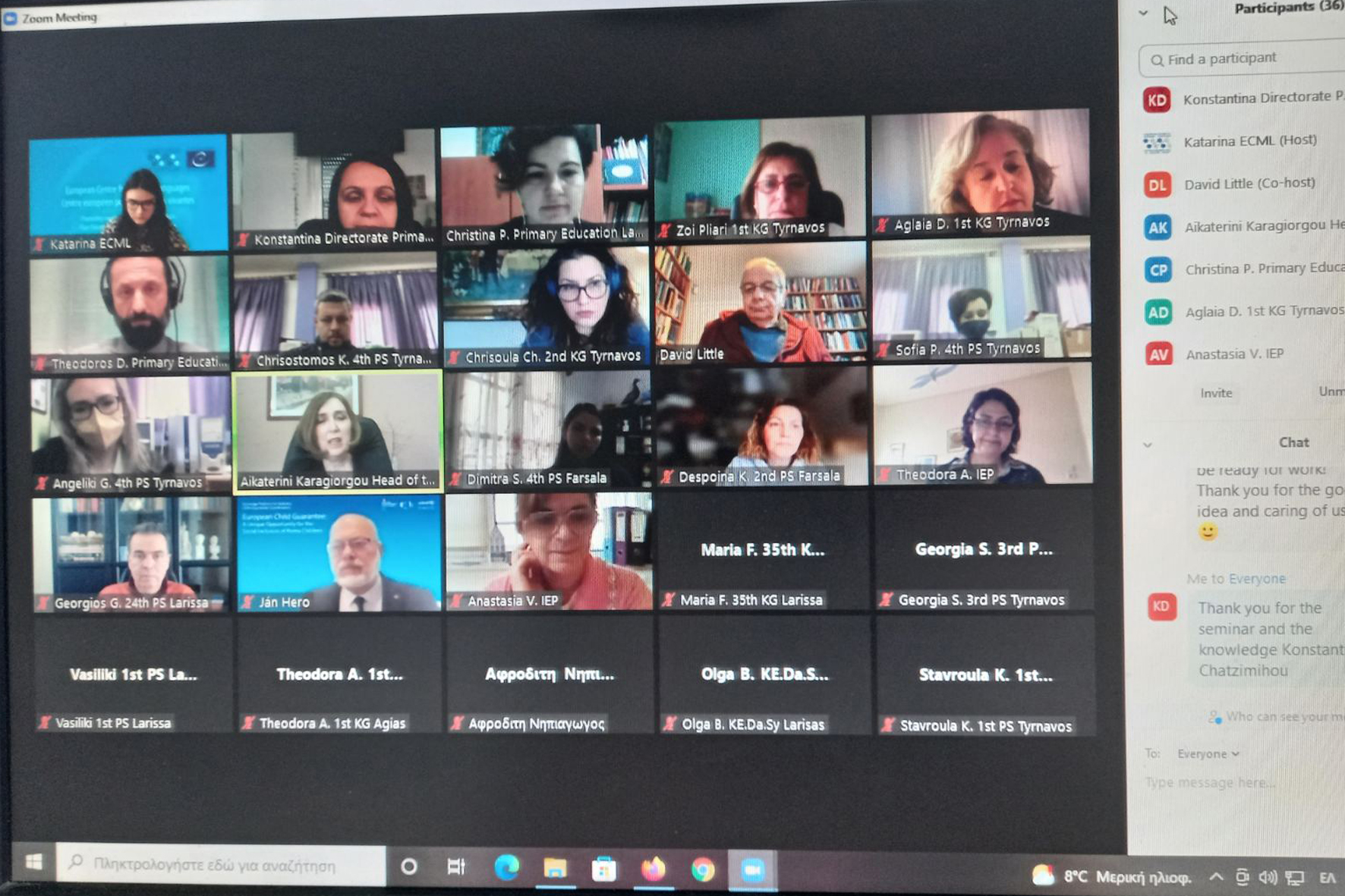
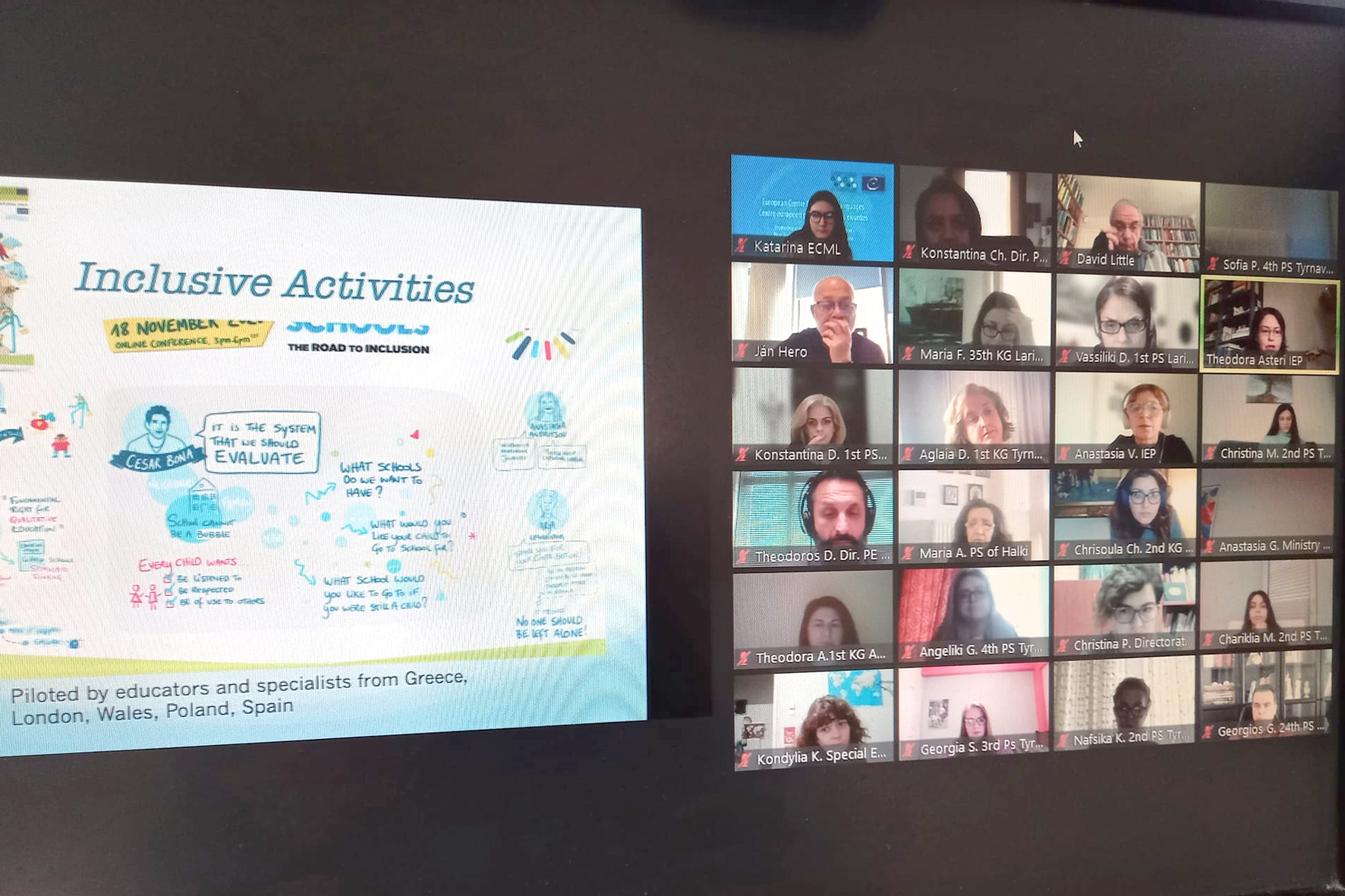
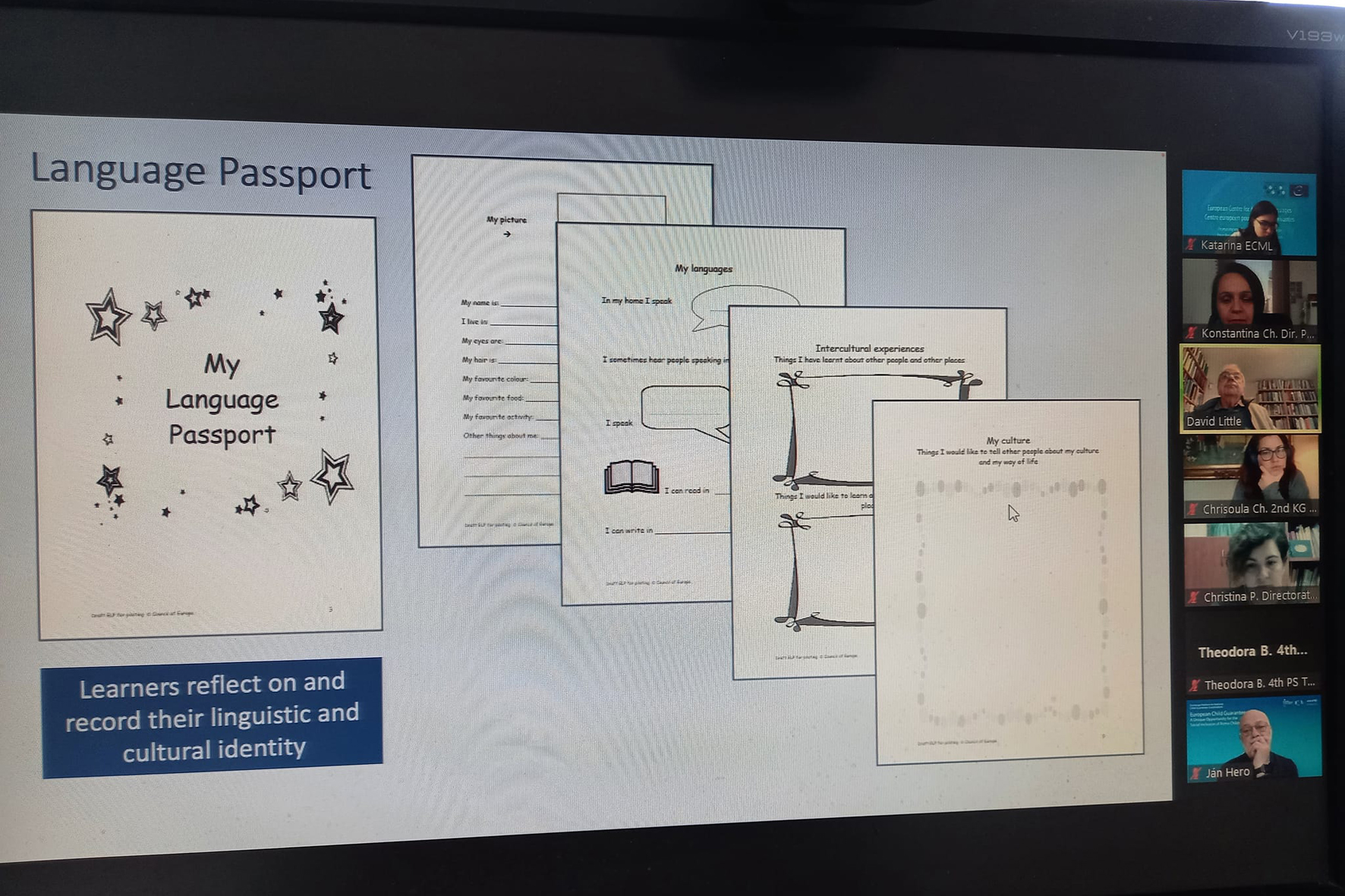
10.11.2022
Atelier national de formation « Relier les curricula, les tests et les examens de langues au Cadre européen commun de référence (RELANG) », (23 – 25 septembre 2022, Athènes, Grèce)
Organisation sur place : Maria Katsantoni, Université Ouverte Hellénique
Experts : José Noijons, Pays-Bas; Gábor Szabó, Hongrie
Participants : 25 (évaluateurs et examinateurs de langues, rédacteurs d’items, enseignants et formateurs d’enseignants, inspecteurs des langues)
« Le Master « Didactique du Français Langue Étrangère » de l’Université Ouverte Hellénique dans un souci de formation continue et tout au long de la vie de son personnel enseignant du supérieur en partenariat avec le Ministère grec de l’Éducation et des Cultes - Direction des Affaires Européennes et Internationales - Section des Relations Internationales, a organisé en coopération avec le Centre Européen des Langues Modernes (ECML/CELV) du Conseil de l’Europe un atelier de formation nationale, mais d’envergure internationale portant sur le projet RELANG « Relier les curricula, les tests et les examens de langues étrangères au Cadre européen commun de référence et son Volume Complémentaire ». La formation a eu lieu dans les locaux de l’Université Ouverte Hellénique à Athènes en Grèce en septembre 2022.
La formation a réuni des enseignants du supérieur des programmes surtout Niveau Master 2 et Master 1 des programmes des langues et des cultures étrangères de l’Université Ouverte Hellénique et de l’Université Nationale et Capodistrienne d’Athènes, de l’Université Aristote de Salonique et de l’Université Ionienne à Corfu.
Des méthodologies et des pratiques évaluatives alternatives conformément aux prescriptions du Cadre européen commun de référence et de son Volume Complémentaire (éd. 2020) ont été mis en œuvre afin de mesurer et d’optimiser l’acquisition des compétences communicatives langagières, (inter)culturelles et pluriculturelles de nos étudiants futurs enseignants des langues étrangères, médiateurs culturels, évaluateurs et examinateurs de certifications nationales et internationales en langues étrangères, concepteurs de programmes, décideurs politiques et rédacteurs d’items.
L’atelier de formation a favorisé sans doute l’occasion de nombreux échanges, de confrontation d’idées et de construction de savoirs internationaux dans une finalité politique éducative en Grèce d’exigence accrue de différenciation des parcours de formation et de renouvellement des Curricula Universitaires d’un Niveau Master 1 et Master 2 dans le domaine des sciences du Langage et de l’enseignement-apprentissage des langues étrangères et/ou secondes (anglais, français, allemand, espagnol, italien et grec moderne). Il a en même temps permis aux enseignants formés de porter une réflexion consciente afin de contribuer prochainement à l’élaboration du nouveau matériel didactique quant au processus d’évaluation (mοdalités de contrôle des connaissances - session d’examens) du public cible de nos étudiants surtout dans les masters 2 numériques de formation à distance de l’Université Ouverte Hellénique. »
Maria Katsantoni, coordinatrice locale, 19 octobre 2022
Site web du projet du CELV : RELANG ‒ UE-CELV accord de coopération 2022 « Méthodologies et évaluation innovantes dans l'apprentissage des langues »
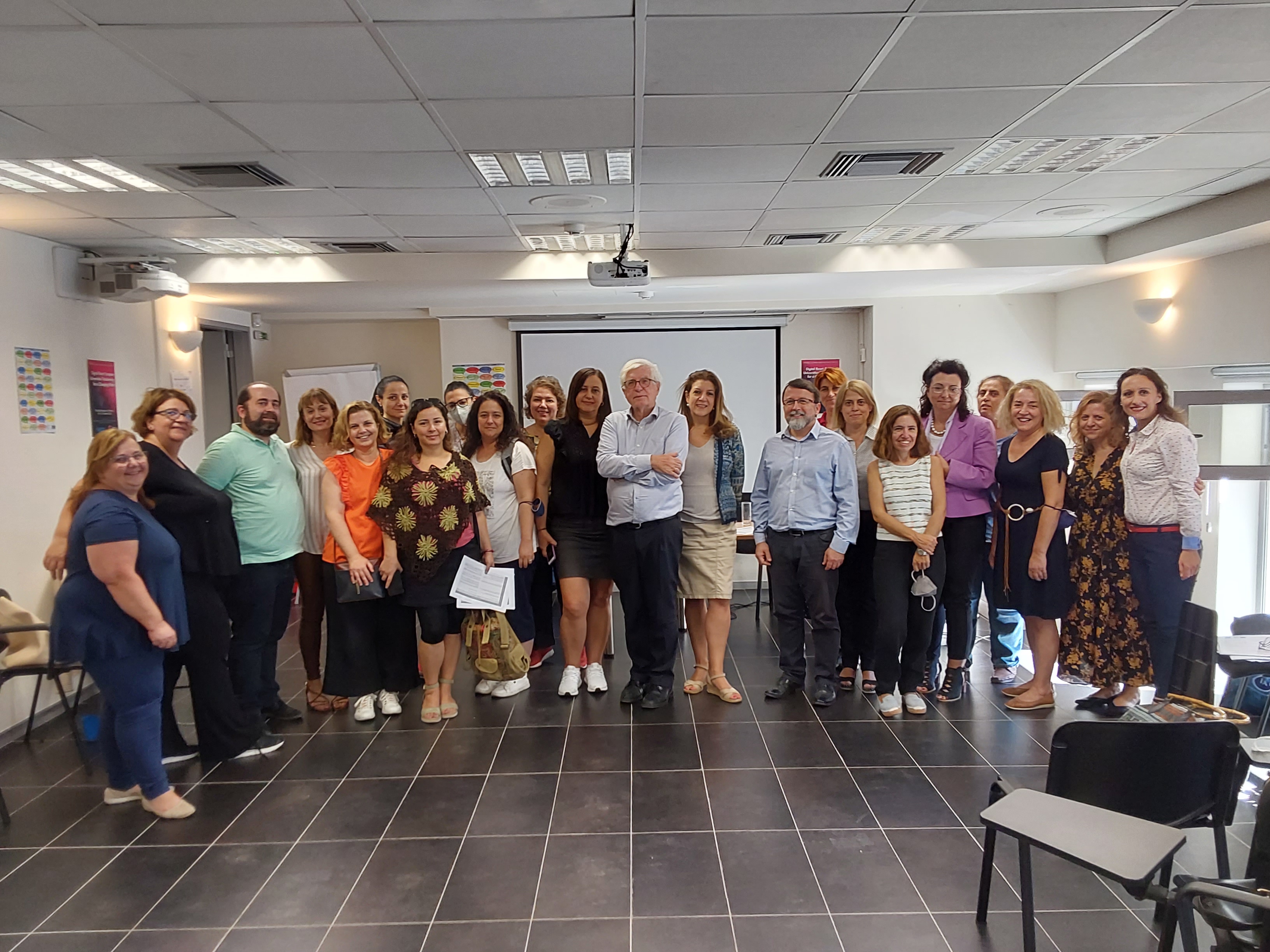
02.07.2024
“Language of schooling: Developing language awareness in subject classes” workshop in Lesbos, Greece
Date and venue: Lesbos, Greece, 18-19 June 2024
Local organiser: Angeliki Tsakyri, Primary School Ippiou, Lesbos
ECML experts: Eli Moe (Norway) and Jérôme Béliard (France)
Participants: 33 primary and secondary language and subject teachers, refugee education coordinators, school advisors
The “Language of schooling: developing language awareness in subject classes” workshop organised by the European Centre for Modern Languages (ECML) in cooperation with the Section of International Relations of the Hellenic Ministry of Education and the Regional Directorate of Education of the North Aegean, offered significant benefits for teachers who develop the modern educational systems. The event followed an agenda of well-structured workshops, to emphasize the critical role of language across all subjects,empowering teachers with tools and strategies to support students' language development and thereby enhance overall academic outcomes. Participants had the opportunity to gain insights into fostering an inclusive learning environment for all students.
This workshop also promoted collaboration among educators from different educational levels, encouraging the exchange of best practices and resources. It highlighted the importance of language-aware teaching in policy and curriculum development, advocating for its inclusion.
For further resources, the ECML website offers a wealth of information and tools for educators seeking to implement language awareness in their teaching practices.
Further developments in this area can be found on the ECML’s official website, providing continuous support and updates for educators committed to enhancing language awareness in schools. This initiative is a step forward in ensuring that all students, regardless of their language or cultural background, have equal opportunities to succeed academically.
Tsakyri Angeliki
*****
Greek version
Το επιμορφωτικό εργαστήριο «Language of Schooling: Developing Language Awareness in Subject Classes» που διοργάνωσε το Ευρωπαϊκό Κέντρο Σύγχρονων Γλωσσών (ECML) σε συνεργασία με το Τμήμα Διεθνών Σχέσεων του Ελληνικού Υπουργείου Παιδείας και την Περιφερειακή Διεύθυνση Εκπαίδευσης Βορείου Αιγαίου, προσέφερε σημαντικά οφέλη σε εκπαιδευτικούς που διαμορφώνουν τα σύγχρονα εκπαιδευτικά συστήματα. Η επιμόρφωση ακολούθησε μια ατζέντα καλά δομημένων πρακτικών εργαστηρίων, έτσι ώστε να τονιστεί ο κρίσιμος ρόλος της γλώσσας σε όλα τα μαθήματα, ενδυναμώνοντας τους δασκάλους με εργαλεία και στρατηγικές για να υποστηρίξουν τη γλωσσική ανάπτυξη των μαθητών και να ενισχύσουν τα συνολικά ακαδημαϊκά αποτελέσματα. Οι συμμετέχοντες είχαν έτσι την ευκαιρία να αποκτήσουν γνώσεις για την δημιουργία ενός περιβάλλοντος μάθησης χωρίς αποκλεισμούς για όλους τους μαθητές.
Το εργαστήριο κατάφερε παράλληλα, να προωθήσει τη συνεργασία μεταξύ εκπαιδευτικών από διαφορετικές εκπαιδευτικές βαθμίδες, ενθαρρύνοντας την ανταλλαγή βέλτιστων πρακτικών και πόρων, υπογραμμίζοντας τη σημασία της γλωσσικής διδασκαλίας στην ανάπτυξη πολιτικών και προγραμμάτων σπουδών και υποστηρίζοντας τη συμπερίληψη.
Οι εκπαιδευτές και ο ιστότοπος του ECML προσέφεραν πληθώρα πληροφοριών, πόρων και εργαλείων για τους εκπαιδευτικούς που επιδιώκουν να εφαρμόσουν τη γλωσσική επίγνωση στις διδακτικές τους πρακτικές.
Περισσότερο υλικό σε αυτόν τον τομέα υπάρχει στον επίσημο ιστότοπο του ECML, παρέχοντας συνεχή υποστήριξη και ενημερώσεις σε εκπαιδευτικούς που στοχεύουν στο να ενισχύσουν τη γλωσσική ευαισθητοποίηση στα σχολεία. Αυτή η πρωτοβουλία είναι ένα βήμα προς τη διασφάλιση ότι όλοι οι μαθητές, ανεξάρτητα από τη γλώσσα ή το πολιτιστικό τους υπόβαθρο, έχουν ίσες ευκαιρίες για αποτελεσματικότερη εκπαίδευση.
Tsakyri Angeliki
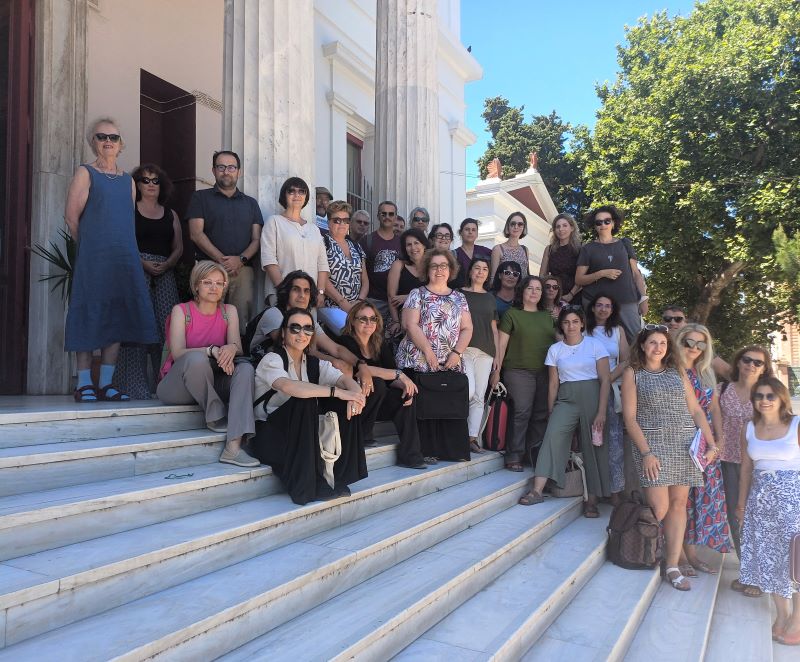
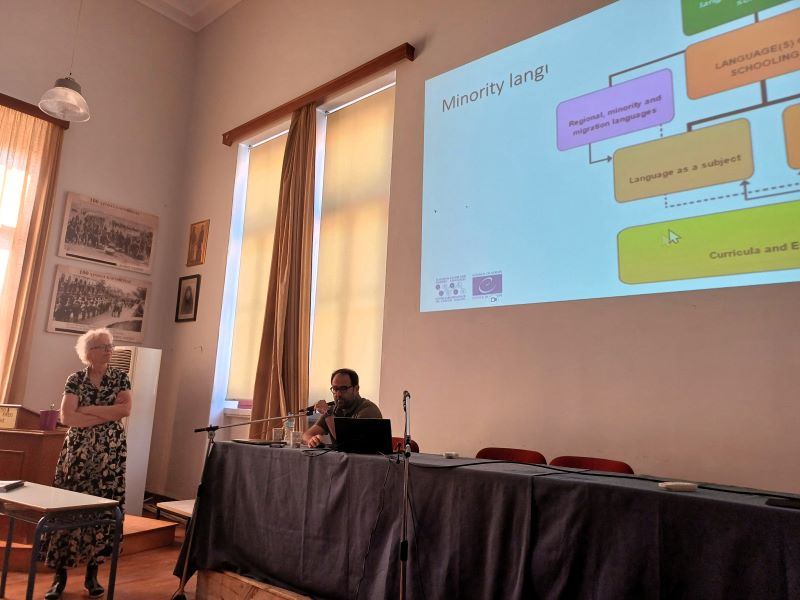
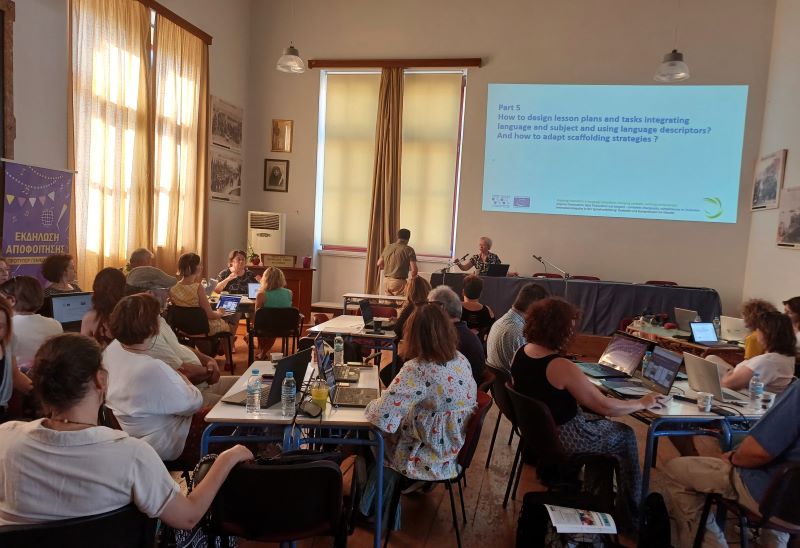
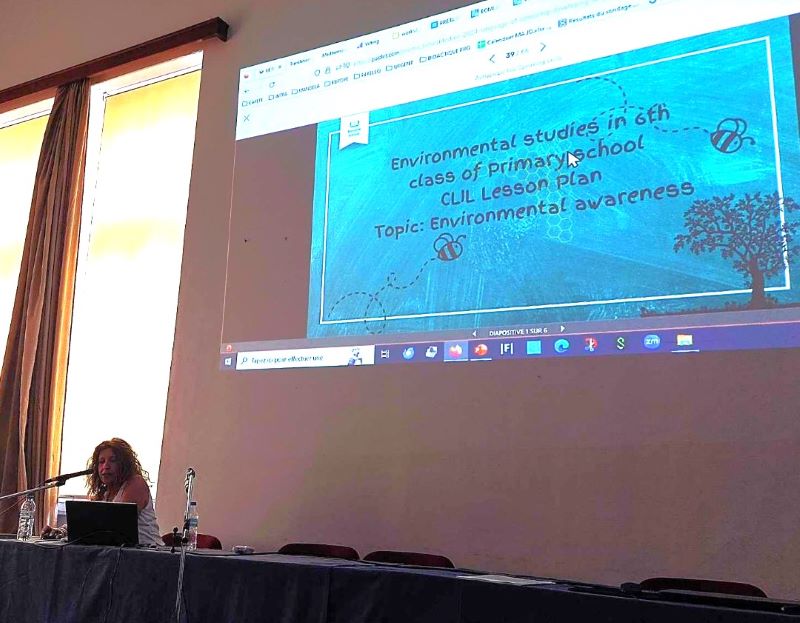
08.06.2019
"Content and language integrated learning (CLIL) - A pluriliteracies approach to teaching for learning": workshop results (16-17 May 2019, Larissa, Greece)
Date: 16-17 May 2019
Venue: Municipal Art Gallery of Larissa-Museum G.I. Katsigra, Larissa, Greece
Local organiser: Marina Kollatou, Head Teacher of 3rd Senior High of Larissa, President of English Teachers’ Association of Larissa
ECML experts: Dunja Chamberlain and Frédéric Taveau
Participants: 38 teachers of different subjects, head teachers, coordinators of education.
A two-day workshop titled “Content and language integrated learning – A pluriliteracies approach to teaching for learning” took place in Larissa, Greece on 16-17 May 2019. The workshop was organised in the framework of ECML’s cooperation with the Greek Ministry of Education, Research and Religious Affairs, Directorate of European and International Relations.
The workshop participants greatly benefited from the trainers’ presentations, materials, resources and activities as well as from their own active participation in classroom activities simulations, discussions and group work. More specifically, they enhanced their scope of teaching approaches, they developed awareness of the value of the pluriliteracies approach for the development of academic literacies and transferable skills of learners and realized the importance of the teacher’s mindset in the teaching and learning process. They became aware of the fact that the pluriliteracies approach enables teachers to facilitate deep learning across languages, disciplines and cultures for all learners, including those who do not speak the official language spoken in the school (Greek, in our case), thus enhancing their performance in the different subjects and acquiring a good command of academic language.
Finally, participants were encouraged to seek for opportunities offered by ECML (https://www.ecml.at/) to broaden their knowledge on modern pedagogies, expand their teaching practices and take advantage of the ECML resources.
Marina Kollatou, local organiser
Related links
Greek version
Διήμερο εργαστήριο με θέμα «Ολοκληρωμένη Διδασκαλία Γλώσσας και Περιεχομένου (CLIL)
Μια μέθοδος ανάπτυξης πολυγραμματισμών για ουσιαστική μάθηση» πραγματοποιήθηκε στη Λάρισα στις 16-17 Μαΐου 2019. Το εργαστήριο διοργανώθηκε στο πλαίσιο συνεργασίας του Ευρωπαϊκού Κέντρου Σύγχρονων Γλωσσών του Συμβουλίου της Ευρώπης (ECML) και της Διεύθυνσης Ευρωπαϊκών και Διεθνών Σχέσεων του Ελληνικού Υπουργείου Παιδείας, Έρευνας και Θρησκευμάτων.
Το εργαστήριο ήταν εξαιρετικά χρήσιμο για τους εκπαιδευτικούς που συμμετείχαν καθώς τα οφέλη που αποκόμισαν ήταν πολλά σύμφωνα με τις μαρτυρίες τους. Πιο συγκεκριμένα, με τις παρουσιάσεις, τις δραστηριότητες, το υλικό που χρησιμοποίησαν οι εκπαιδευτές αλλά και με την ενεργό συμμετοχή τους στις συζητήσεις, στις ομαδικές εργασίες, στις προσομοιώσεις δραστηριοτήτων της τάξης, οι συμμετέχοντες είχαν την δυνατότητα να διευρύνουν τις παιδαγωγικές τους μεθόδους, να αντιληφθούν την αξία της διδασκαλίας των πολυγραμματισμών για την ανάπτυξη της ακαδημαϊκής γλώσσας και των δεξιοτήτων εκείνων που μπορούν να μεταφέρονται από μάθημα σε μάθημα. Επίσης, είχαν την ευκαιρία να συνειδητοποιήσουν το πόσο σημαντικό ρόλο στη μαθησιακή διαδικασία παίζει η στάση του εκπαιδευτικού.
Αντιλήφθηκαν ότι η μέθοδος των πολυγραμματισμών προσφέρει τη δυνατότητα στους εκπαιδευτικούς να διευκολύνουν την εμβάθυνση στη μάθηση γενικά, είτε πρόκειται για γλώσσα, επιστήμη, πολιτισμό, πράγμα που έχει ως αποτέλεσμα τη βελτίωση της επίδοσης και στη γλώσσα και στα διάφορα γνωστικά αντικείμενα, όχι μόνο των μαθητών που έχουν μητρική τη γλώσσα που ομιλείται στο σχολείο αλλά και των αλλόγλωσσων μαθητών.
Τέλος οι συμμετέχοντες παροτρύνθηκαν να αναζητούν και να αξιοποιούν της ευκαιρίες που προσφέρονται από το Ευρωπαϊκό Κέντρο Σύγχρονων Γλωσσών (https://www.ecml.at/) για να επικαιροποιήσουν τις γνώσεις τους σε θέματα διδακτικής και παιδαγωγικής και να εκμεταλλευτούν το υλικό και τις εκδόσεις που είναι αναρτημένα στον ιστότοπο του Κέντρου (https://www.ecml.at/Publications).
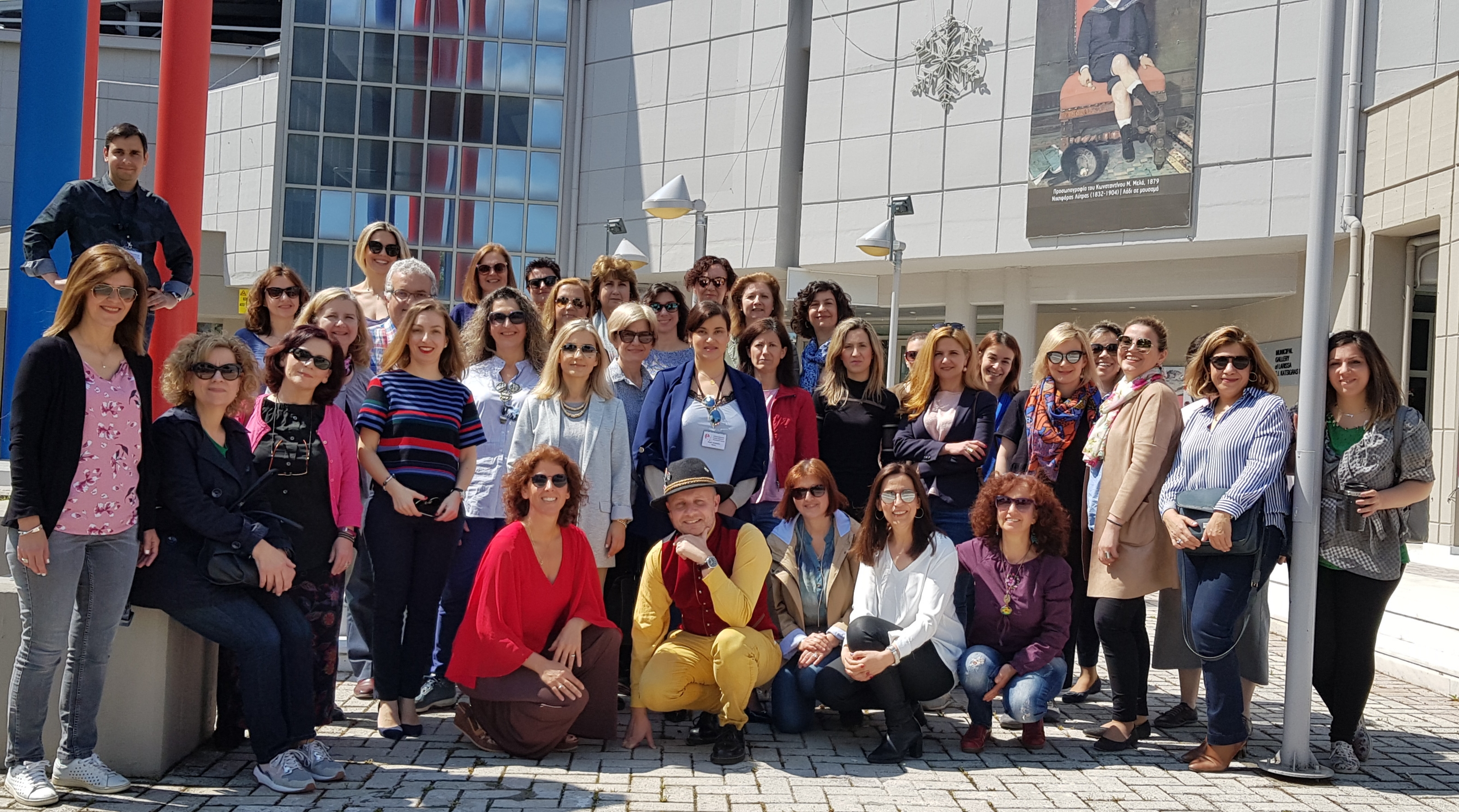
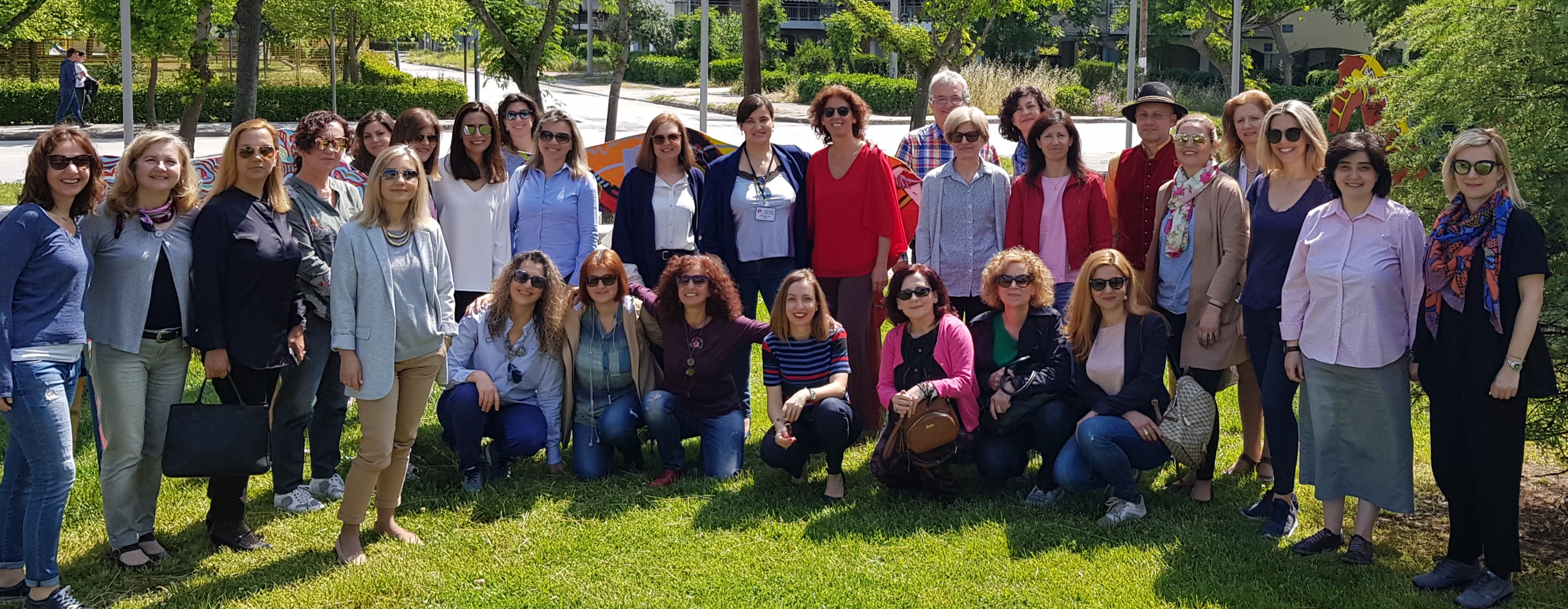
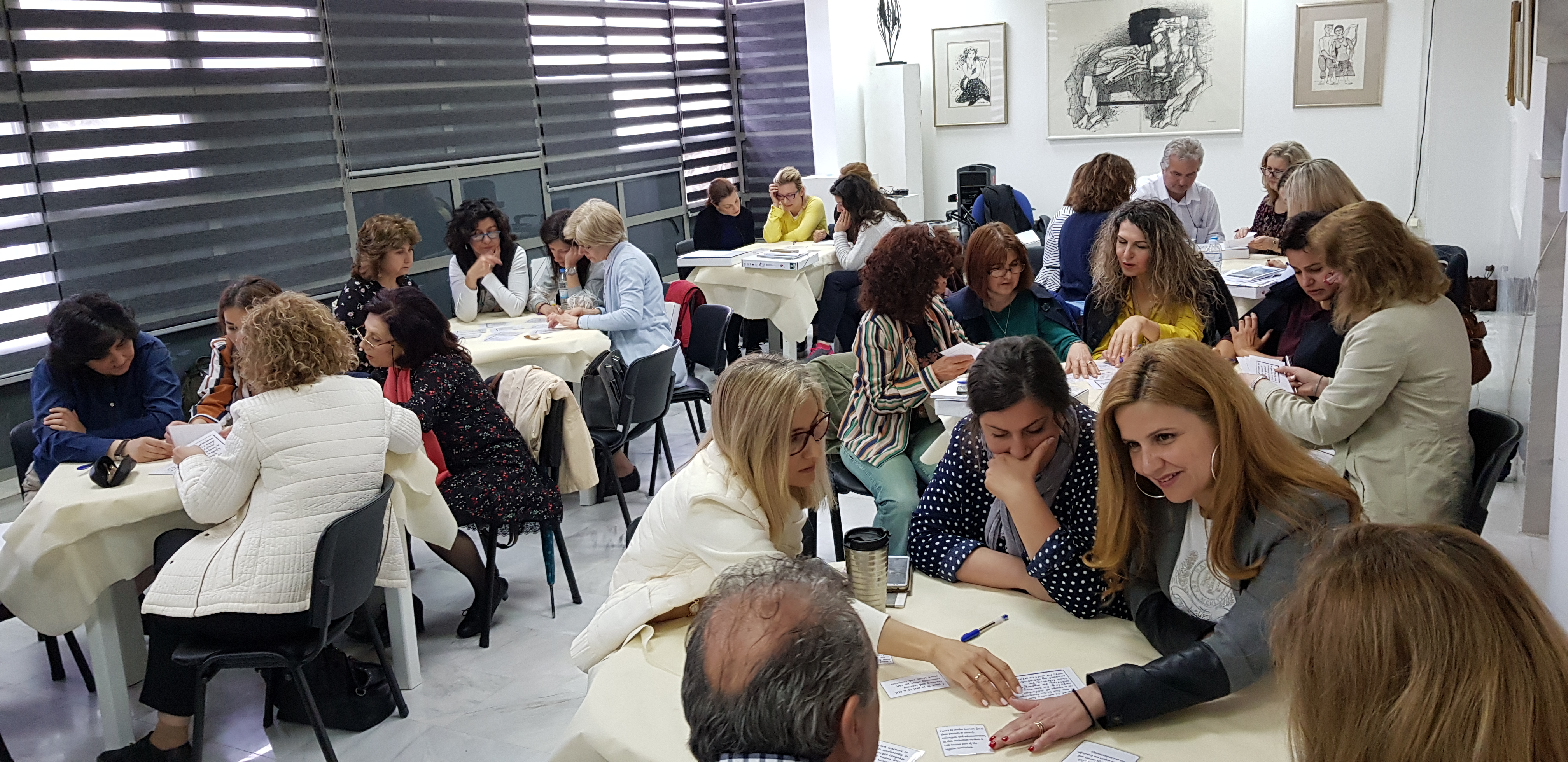
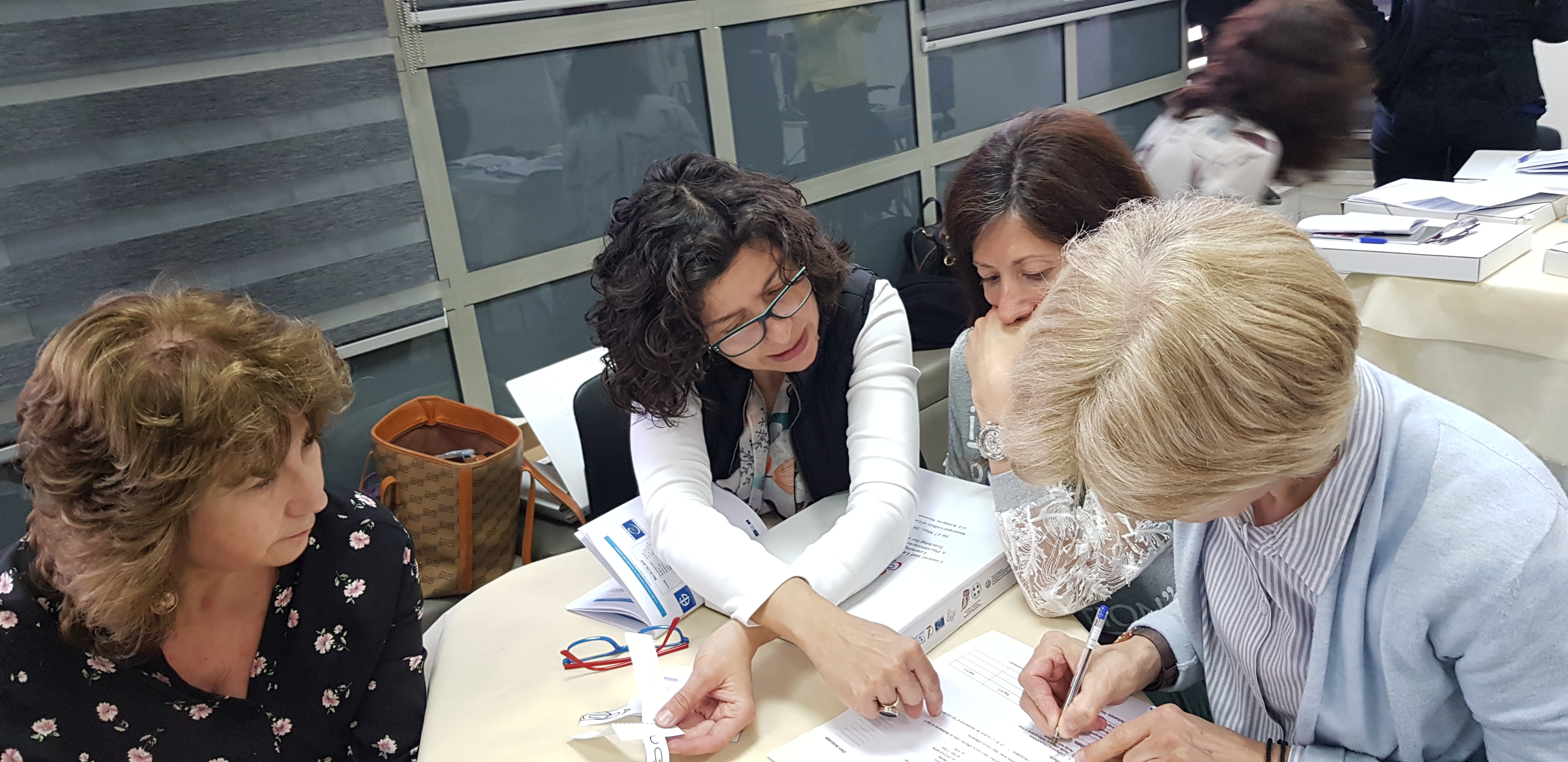
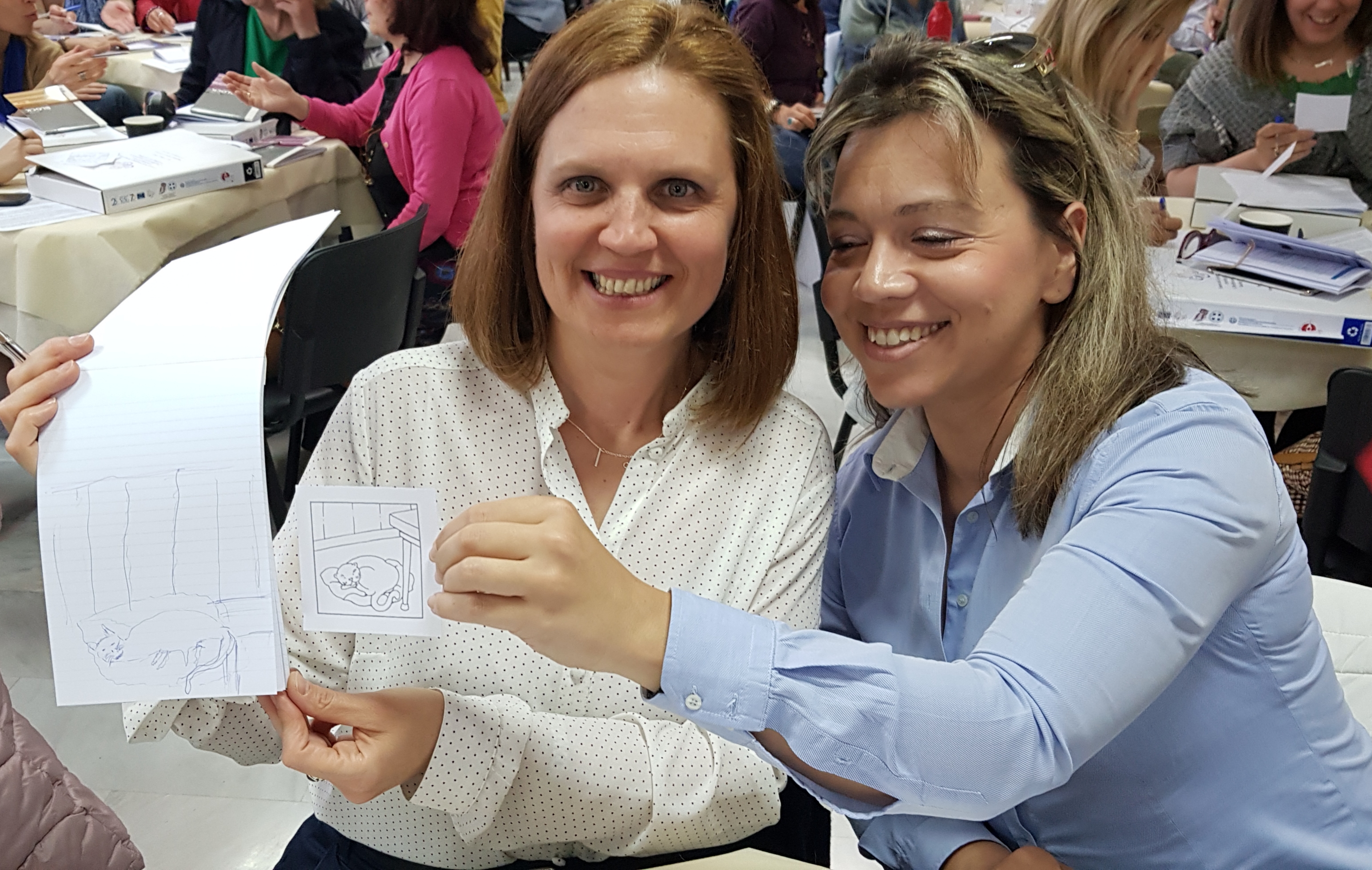
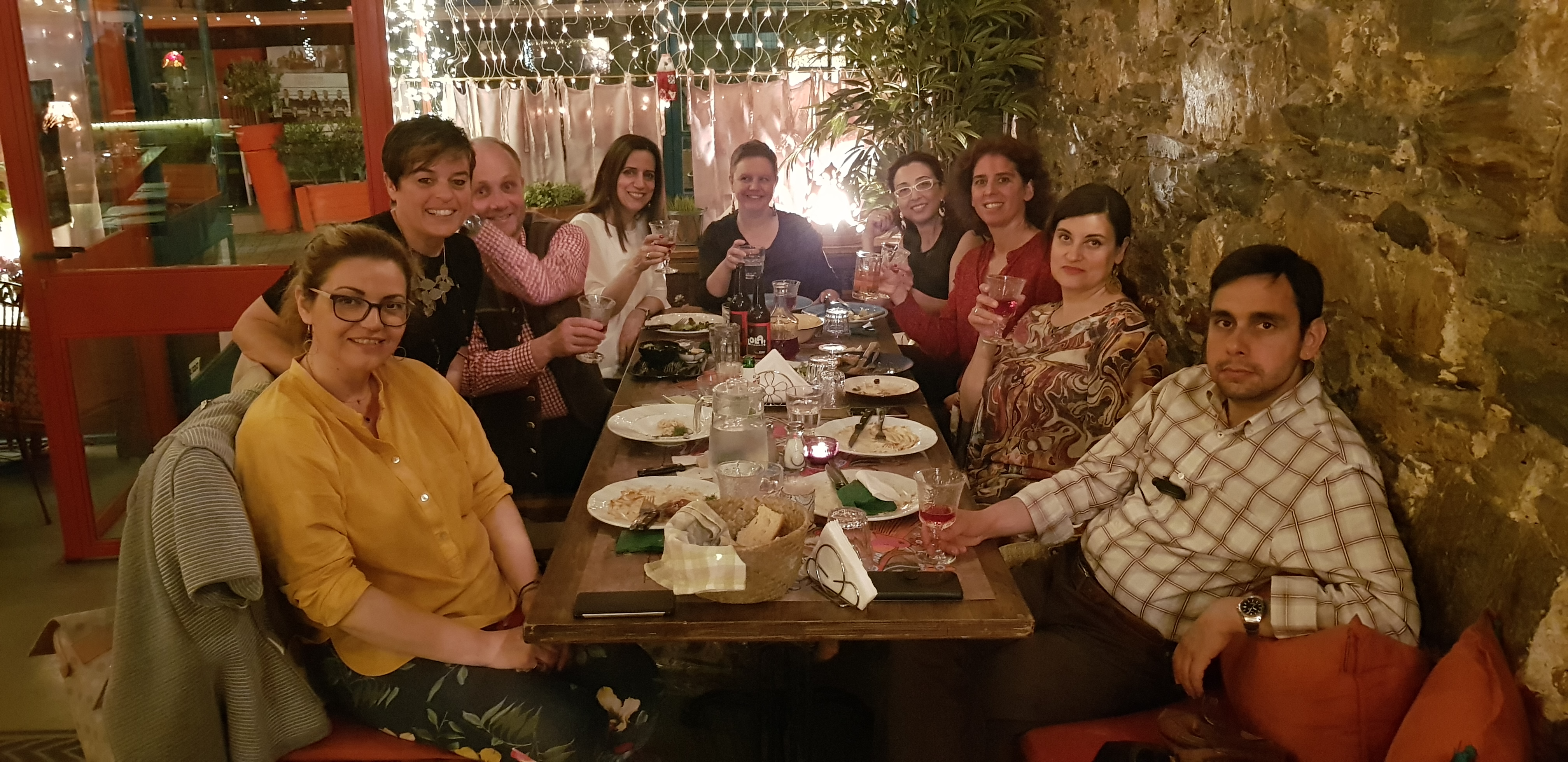
21.05.2025
Join the Romani-Plurilingual Policy Experimentation (RPPE) webinar

Part of the Closing Conference of RPPE in Bratislava
The Council of Europe is pleased to invite you to a webinar that marks the conclusion of the Romani-Plurilingual Policy Experimentation (RPPE), launched in 2022 in Greece, Slovak Republic and Slovenia. The RPPE has explored ways of using Romani language and culture to support the educational inclusion of Roma pupils in primary education.
Closely linked to the Council of Europe’s Recommendation on the importance of plurilingual and intercultural education for democratic culture (CM/Rec(2022)1), the RPPE has addressed the gap between policy and classroom practice by developing approaches and activities specific to each school’s student cohort and context.
Highlights of the programme:
- Opening remarks – Sarah Breslin, Executive Director, European Centre for Modern Languages and Head of Language Policy, Council of Europe
- Overview of the RPPE and its objectives – David Little, Academic Coordinator
- Presentations by country teams from Greece, Slovak Republic, Slovenia
This webinar offers a unique opportunity to reflect on the practical application of the Council of Europe’s concept of plurilingual and intercultural education in schools and classrooms and to consider their relevance both for the educational inclusion of Roma pupils as well as of learners from other linguistic and cultural minorities.
Join us to learn, exchange and contribute to inclusive education.
Register here until 2 June 2025.
Source: Council of Europe Education Department, 20 May 2025
20.05.2022
Recent educational reforms in foreign language education policy and practice in Greece
Abstract
The purpose of the present paper is to provide an overview of the most significant language policies and innovations implemented in the Greek educational system focusing on the years 2019-22, namely:
i) The introduction of the English language in kindergarten through an innovative pedagogical approach,
ii) The design of new curricula and educational material for primary and secondary education, based on the Common European Framework of Reference for Languages (CEFR),
iii) The legal consolidation of alternative methods of student assessment and the development of learners’ transversal and soft skills, through the new curricula and the introduction of the “21st Century Skills Labs” in the programme of study of Kindergartens, Primary and Lower Secondary Schools.
For a better understanding, we will link these recent innovations with the major changes in foreign language education during the last decade.
Keywords: Greece, language policy, CEFR, transversal competencies, alternative assessment, primary education, secondary education.
*****
Introduction
The Greek government, taking as a starting point the objective set by the Barcelona European Council of March 2002 “to improve the mastery of basic skills, in particular by teaching at least two foreign languages from a very early age” and the Council of Europe’s concern for improving the conditions of language learning and intercultural communication, has succeded in developing a promising, integrated foreign language pedagogical model, spanning from pre-primary to upper-secondary education, implementing a series of innovations.
To better understand these innovations, a brief overview of the Greek primary and secondary educational system is provided below.
A Brief Overview of the Greek Primary and Secondary Educational System
Compulsory education in Greece, which is free of charge, comprises:
a) 2-years of attendance ar kindergarten (Nipiagogeio) for children aged 4 and 5;
b) 6-years of attendance at primary school (Dimotiko); and
c) The first cycle of secondary education, i.e. 3-years of attendance at lower secondary school (Gymnasio).
Upper secondary education belongs to the second cycle of non-compulsory education and comprises two types of Senior High Schools that provide equivalent school-leaving certificates: the General Lyceum, with academic orientation and the Vocational Lyceum that combines general education with specific technical-vocational skills.
Both of them enable students to enter tertiary education.
Curricula are centrally developed and nationally implemented for all schools of primary and secondary education.
Foreign Language Innovations
Pre-school education
As of September 2021, the English language was introduced in preschool education (kindergarten) in Greece, after a successful pilot implementation. The aim of this innovative policy is to promote the holistic development of young learners through creative and meaningful activities that promote, among others, oracy skills, intercultural awareness, and 21st-century skills, as dictated by European and international guidelines. The most promising component of the project is the active collaboration of the kindergarten and the English teachers in developing scenarios for young learners specially designed within the CLIL (Content Language Integrated learning) philosophy, practices that enhance task authenticity and ensure practical application of the language. To support teachers in the project implementation, teacher training programmes were designed by specialists and provided through a distance learning modality, with programme assessment being an integral part of the endeavour. The project has generated an innovative pedagogical framework for teaching English in kindergarten, befitting the cross-thematic nature of the kindergarten’s curriculum, while it facilitated the transition to English language learning in the first two grades (English for Young Learners-PEAP programme) of the primary school.
Primary school and lower-secondary education
English language instruction in the first two years of primary school was based on a student-centered curriculum (English for Young Learners-PEAP) that focused on a “learning by doing” approach and aimed at developing students’ intellectual and psychosocial skills, through multiple experiential learning activities that account for students’ different learning styles, preferences, and interests. The programme supplemented the instruction of English in the next primary school grades introduced some years previously. The printed edition of the English Language Portfolio (ELP), a resource having the Common European Framework of Reference for Languages (CEFR) as a point of reference, was later distributed to schools and used for recording all of the languages in the learner’s repertoire, as well as documenting the student’s progress and achievements in languages. Designed on the principles of self-assessment and learner autonomy in the language learning process, the ELP aims at involving students in the evaluation of their work, in collaboration with their teacher, enabling them to take responsibility for their language learning. The step to follow was the development of the Integrated Foreign Languages Curriculum.
The Integrated Foreign Languages Curriculum for primary and lower-secondary schools has been in place since the 2016-2017 school year, spanning the teaching/learning of foreign languages from the third grade of primary education to the end of lower-secondary education. Through the curriculum, foreign language teaching, learning objectives, content, methodology, and evaluation are organized under the competence levels of the CEFR of the Council of Europe which emphasizes what students can do with the language, taking an action-oriented approach, and viewing them as “social agents.” This enables and indeed promotes the adaptation of foreign language teaching to the needs of specific educational, social and cultural contexts.
Upper-secondary general education
Foreign language education in upper-secondary general schools has been significantly upgraded since the 2016-2017 school year, as currently the expected levels of language proficiency at the end of upper-secondary general education have been upgraded to C1 for English (compulsory for all) and B1 for French/German (students select a second foreign language between French and German).
A new Common Curriculum for Foreign Languages in general upper-secondary schools has recently been developed. It is an extension of the existing Integrated Foreign Languages Curriculum for primary and lower-secondary schools but also incorporates aspects from the CEFR Companion Volume (2020) which broadens the scope of language education, including descriptors for mediation, online interaction, and plurilingual/pluricultural competence. The curriculum aims to develop students’ communicative competence, language and intercultural awareness, and mediation skills. It also aims to help students become skilled in multiliteracies and develop their digital literacy. The curriculum focuses on learning outcomes, i.e. everything that the students need to know, understand and be able to apply upon completion of each learning process. More specifically, expected learning outcomes are defined as the totality of information, knowledge, understanding, attitudes, values, skills, competencies, or behaviours students should master upon the successful completion of the curriculum. Consequently, all parameters of the teaching and learning process depend on the determination of the expected learning outcomes. The above goals are applied through the development of broad thematic areas, individual thematic units, detailed descriptions of the expected learning outcomes, in terms of indicative communicative language actions/activities and competencies and digital skills, and their horizontal connection with indicative activities per level of language proficiency. Teacher training and piloting of the new foreign language curriculum in model/experimental schools are currently implemented.
Upper-secondary vocational education
Vocational schools (EPAL) equip students with general as well as technical and vocational knowledge, expertise, and skills. A new curriculum for General English is in design, following the CEFR’s core philosophical concepts and principles and integrating transversal competencies as a tool to meet the demands of the labour market and increase employability.
Transversal competencies and foreign language education
An important aspect of foreign language education is the development of learners’ transversal competencies (also called “soft” or “transferrable” skills), which means developing their knowledge, skills, attitudes, and values in areas such as global citizenship, education for sustainable development, media literacy, their intrapersonal and interpersonal skills and “21st-century skills,” which include communication, co-operation, and teamwork, creativity, critical and innovative thinking, problem-solving, and leadership. This focus on transversal competencies has had a significant impact on Greek curricula and the educational system as a whole through the introduction of the “21st Century Skills Labs” in the programme of study of Kindergartens, Primary and Lower Secondary Schools throughout the country, introducing new topics and thematic areas in schools such as robotics, entrepreneurship, sex education, environmental protection and road safety.
Development of teaching/learning materials for foreign languages
A long overdue endeavoru to replace the existing teaching/learning materials for all foreign languages at all education levels has been undertaken. The pedagogical guidelines and the technical specifications have been developed. The materials include all teaching and learning resources that contribute to the formation of an active and creative learning environment, i.e. textbooks and supplementary material (audio-visual or digital) that support the process of building and enriching knowledge as well as the cultivation of students’ skills and attitudes. In this learning environment, in which the use of technology plays a key part, teachers collaborate with students in the interpretation and evaluation of the material, so that the acquisition of knowledge is based on discourse and the negotiation of meaning is based on the social context and the perceptions of the participants. The achievement of learning outcomes is based on the utilization of content not only from textbooks but also from supplementary materials in digital form. The aim is for the materials to define the learning process dynamically, to set directions that make the curriculum active in practice, and to propose activities that also draw upon the resources from the supplementary material. The interconnection of the textbooks with the supplementary digital material is done through the use of QR codes on two levels: the macro-level (e.g. thematic unit) and the micro-level (e.g. activities).
Alternative assessment
Along with the development of new learner-centered curricula and educational materials for foreign language instruction in Greek schools, alternative assessment methods have been adopted in addition to more traditional ones. While diagnostic assessment methods can be conducted to evaluate students’ linguistic level at the beginning of the school year and summative ones are used at the end of the school year to evaluate students’ overall achievement, alternative assessment methods (used mainly for formative assessment) can help learners establish self-improvement goals and be actively involved in the learning process through activities, such as self and peer evaluation. The novelty introduced is that alternative assessment (as formative assessment) can now serve as a substitute for a traditional test to evaluate students’ achievement and progress throughout the school year.
Conclusion
The present paper provides an overview of the recent changes in foreign language instruction in Greece, which are rooted in European and international guidelines. An integrated model for foreign language instruction, based on the CEFR and covering pre-school to upper secondary education has been developed, new curricula and educational materials have been designed, with transversal competencies playing a key role in them, while alternative assessment has been consolidated.
05.03.2019
Preparing the 2019 series of ECML training and consultancy workshops in Austria, Bosnia and Herzegovina, Denmark, Greece, and Poland
The ECML expert team of the activity “A pluriliteracies approach to teaching for learning” discussed details of their 2019 training workshops with local organisers from Austria, Bosnia and Herzegovina, Denmark, Greece, and Poland at the ECML in Graz.
More information on the individual training sessions will soon be available on the dedicated website.
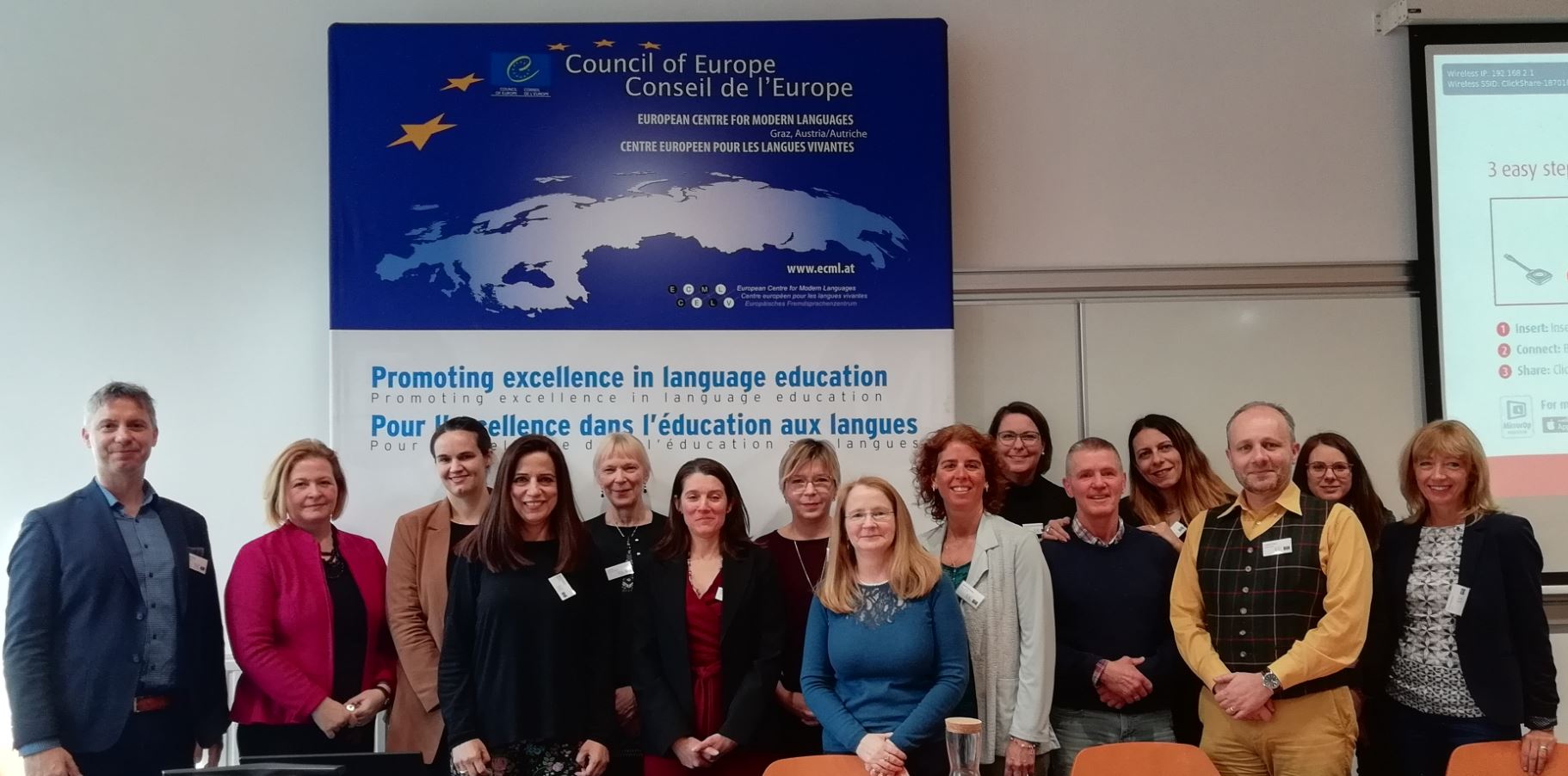
01.03.2019
ECML training in Greece: language development, new teaching perspectives, career prospects through mobility
Date: 6-7 December 2018
Venue: Directorate of primary education, Chania, Crete, Greece
Local coordinator: Athina Ntoulia, School advisor of primary schools teachers
ECML trainers: Kristin Brogan, Ireland; Anna Czura, Poland
Participants: 52 teachers of primary, teachers of arts, music and languages, school directors, counselors and school advisors
Plurimobil has opened up perspectives and pointed out other paths of knowledge in the sensitive issue of language development. It also offers career prospects through detailed and thorough programme updates. Both the programmes and the people working in them are highly trained, communicative, courteous and open to collaborations and sharing their views. The programme expanded the participants' horizons and offered new perspectives in their teaching. The expression of their pleasure from their participation has been a source of feedback for us.
The ECML is an organisation with well-designed programmes that respond to the pulse and needs of the era; they are flexible, methodical, functional and are addressed in a simple, understandable way. They take into account the principles of pedagogy and psychology as shown by the programmes and they respect the rights of all. The values that inspire the programmes are essential and universal and they find the acceptance of all.
We strongly recommend participating in ECML programmes. As project coordinator, I had the opportunity to work together flawlessly with some of the ECML team. I was impressed by the friendliness, courtesy, organisation and co-ordination of everyone. I felt like I belonged to a large family. A big thank you to all and especially to Kristin Brogan, Anna Czura, Erika Komon and Margit Huber!
Athina Ntoulia, local organiser
- General information on the training and consultancy services offered by the ECML to its member states- "Multilingual and intercultural learning through mobility (PluriMobil)": English - French
Greek version
Το Plurimobil μας άνοιξε προοπτικές και υπέδειξε κι άλλους δρόμους γνώσεων στο ευαίσθητο θέμα της ανάπτυξης γλωσσών .Επίσης προσφέρει προοπτικές επαγγελματικής ανάπτυξης μέσα από τη λεπτομερή και διεξοδική ενημέρωση των προγραμμάτων. Τόσο τα προγράμματα όσο και οι άνθρωποι που δουλεύουν σε αυτά είναι πολύ καταρτισμένοι, επικοινωνιακοί, ευγενικοί και ανοικτοί σε συνεργασίες και διαμοιρασμό απόψεων. Το πρόγραμμα διεύρυνε τους ορίζοντες των συμμετεχόντων και πρόσφερε νέες προοπτικές στη διδασκαλία τους . Η έκφραση της ευαρέσκειάς τους από τη συμμετοχή τους υπήρξε για μας πηγή ανατροφοδότησης.
Το ECML αποτελεί έναν οργανισμό με πολύ καλά σχεδιασμένα προγράμματα που αγγίζουν τον παλμό και τις ανάγκες της εποχής, είναι ευέλικτα, μεθοδικά, λειτουργικά και απευθύνονται με τρόπο απλό , κατανοητό σε όλους. Λαμβάνουν υπόψη αρχές της Παιδαγωγικής αλλά και της Ψυχολογίας όπως φάνηκε από τα προγράμματα και σέβονται τα δικαιώματα όλων. Οι αξίες που διαπνέουν τα προγράμματα είναι ουσιαστικές και πανανθρώπινες και βρίσκουν την αποδοχή όλων .
Συστήνουμε ανεπιφύλακτα τη συμμετοχή σε προγράμματα του ECML. Ως συντονίστρια του προγράμματος είχα την ευκαιρία να συνεργαστώ άψογα με κάποιους από την ομάδα του ECML. Εντυπωσιάστηκα από την φιλικότητα, την ευγένεια, την οργάνωση και τη μεθοδικότητα του φορέα. Ένιωσα σαν να ανήκα σε μια μεγάλη οικογένεια . Ένα μεγάλο ευχαριστώ σε όλους και ιδιαίτερα στις Kristin Brogan, Anna Czura, Erika Komon and Margit Huber!
Athina Ntoulia, local organiser
16.10.2024
National Training Workshop “Using ICT in support of language teaching and learning (ICT-REV)” (26-27 September 2024, Corfu, Greece)
The specific workshop-program (ICT-REV) provides training in the application of pedagogical principles for language teaching through technology and promotes the effective use of digital tools and open resources to improve the quality of language teaching and learning. It was implemented for the 1st time in Greece, and specifically at the 4th Senior High School of Corfu on September 26-27, 2024 (8.30am-2.30pm) with 28 participants (Education Consultants, School Principals and teachers of foreign languages, kindergarten/primary and Greek working in areas with intercultural schools and/or primary & secondary schools with reception classes), and three trainers from ECML specializing in training language teachers to use ICT in the classroom.
The two-day workshop in line with European and national education policy priorities contributed to the development of digital skills and literacy in the education community with results such as improving teachers' skills and expertise, fostering interaction between colleagues and instructors and participation in a learning and collaborative community practice. The preparation of the workshop and the shared Moodle platform for various activities created the appropriate supportive environment for learning and collaboration. The results captured through an anonymous online questionnaire demonstrated the impact of the specific approach and the need of leveraging tools and resources already developed by ECML. Finally, the participants are already preparing actions to disseminate the workshop and the lesson plan ideas they delivered, thus promoting the exchange of opinions and good practices in their immediate and wider professional environment.
Marianthi Alexandropoulou, coordinatrice locale
Greek version:
Το Ευρωπαϊκό Κέντρο Σύγχρονων Γλωσσών (ECML) του Συμβουλίου της Ευρώπης εδρεύει στο Γκρατς της Αυστρίας και έχει ως αποστολή να προάγει την αριστεία και την καινοτομία στη διδασκαλία γλωσσών και να υποστηρίζει τα κράτη μέλη του στην εφαρμογή αποτελεσματικών πολιτικών γλωσσικής εκπαίδευσης. Συνεργάζεται με φορείς χάραξης πολιτικής στα κράτη μέλη για την ανάπτυξη καινοτόμων λύσεων στη γλωσσική εκπαίδευση μέσα από προγράμματα και δράσεις που υλοποιεί.
Το συγκεκριμένο πρόγραμμα-εργαστήριο ( ICT-REV) παρέχει εκπαίδευση στην εφαρμογή παιδαγωγικών αρχών για τη διδασκαλία γλωσσών μέσω της τεχνολογίας και προωθεί την αποτελεσματική χρήση ψηφιακών εργαλείων και ανοιχτών πόρων για τη βελτίωση της ποιότητας της διδασκαλίας και εκμάθησης γλωσσών. Υλοποιήθηκε για 1η φορά στην Ελλάδα, και συγκεκριμένα στο 4ο ΓΕΛ Κέρκυρας στις 26-27 Σεπτεμβρίου 2024 (8.30π.μ.-2.30μ.μ.) με 28 συμμετοχές από Συμβούλους Εκπαίδευσης, Δ/ντές-τριες σχολικών μονάδων και εκπ/κούς κλάδων ξένων γλωσσών αλλά και νηπιαγωγών, δασκάλων και φιλολόγων που εργάζονται σε περιοχές με διαπολιτισμικά σχολεία και/ή σχολεία Α/θμιας & Β/θμιας Εκπ/σης με τάξεις υποδοχής, και τρεις επιμορφώτριες από το ECML με εξειδίκευση στην εκπαίδευση καθηγητών γλωσσών στη χρήση ΤΠΕ στη τάξη.
Το διήμερο εργαστήριο σύμφωνα με τις προτεραιότητες της ευρωπαϊκής και εθνικής εκπ/κής πολιτικής συνέβαλε στην ανάπτυξη ψηφιακών δεξιοτήτων και γραμματισμού στην εκπ/κή κοινότητα με αποτελέσματα όπως βελτίωση δεξιοτήτων και τεχνογνωσίας των εκπαιδευτικών, αλληλεπίδραση με συναδέλφους και εκπαιδευτές, συμμετοχή σε μια μαθησιακή και συνεργατική κοινότητα πρακτικής. Η προετοιμασία του εργαστηρίου και η κοινή χρήση πλατφόρμας moodle για διάφορες δραστηριότητες δημιούργησαν το κατάλληλο υποστηρικτικό περιβάλλον μάθησης και συνεργασίας. Τα αποτελέσματα που αποτυπώθηκαν μέσω ενός ανώνυμου ηλεκτρονικού ρωτηματολογίου κατέδειξαν τη χρησιμότητα της συγκεκριμένης εκπ/κής προσέγγισης και τη δυνατότητα αξιοποίησης εργαλείων και πόρων που έχει ήδη αναπτύξει το ECML. Τέλος προωθώντας την ανταλλαγή απόψεων και πρακτικών οι συμετέχοντες-ουσες προετοιμάζουν δράσεις διάχυσης του εργαστηρίου και των εργασιών που εκπόνησαν, στο άμεσο και ευρύτερο εκπ/κό τους περιβάλλον.
Marianthi Alexandropoulou, local coordinator
17.01.2020
Training workshop "Use of ICT in support of language learning and teaching (ICT-REV)" (10-11 October 2019, Komotini, Greece)
Venue: Democritus University of Thrace, Komotini, Greece
Local organiser: Pagona Kioutsouki, Education Coordinator for German of the Regional Centre for Educational Planning (PE.K.E.S.) of Eastern Macedonia and Thrace
ECML coordinator team: Aline Germain Rutherford, Canada; Pauline Ernest and Jackie Robbins, Spain
Participants: 30 foreign languages teachers of English, French and German language at the primary or secondary sector
*****
In Thrace, on the border of Europe with Asia, in one of the most deprived areas of Greece and Europe away from the major urban centres, where there are offered training opportunities to develop and to upgrade critical skills, the ECML workshop, offered by the ICT-REV project team, was an amazing experience for us. We took part in a rich and fascinating workshop which has created a fertile ground for building connection and trust among our primary and secondary language teachers and developing our computer skills.
The team of the three experts are experienced workshop leaders with a great understanding of what individuals and groups need and how to adapt their workshop on this. It was a very well-presented workshop with an excellent balance of information, practice and interaction among the participants. We took away not only tools that we can apply in our teaching, but we also learnt the way to design useful activities considering the parameters which help us to create and to enhance learning scenarios.
There is an urgent need in our area for further training at all levels.
Pagona Kioutsouki, local coordinator
- More information about the ECML training and consultancy offer for member states is available here
GREEK VERSION
Στην ακριτική Θράκη, στα σύνορα της Ευρώπης με την Ασία, σε μια από τις πιο υποβαθμισμένες περιοχές της Ελλάδος και της Ευρώπης μακριά από τα μεγάλα αστικά κέντρα όπου υπάρχουν και προσφέρονται ευκαιρίες κατάρτισης για αναβάθμιση κρίσιμων δεξιοτήτων, το επιμορφωτικό εργαστήριο ECML, που διοργάνωσε η ομάδα έργων ICT-REV, ήταν μια εκπληκτική εμπειρία για εμάς. Το πλούσιο και συναρπαστικό εργαστήριο δημιούργησε ένα εύφορο έδαφος για την οικοδόμηση σύνδεσης και εμπιστοσύνης των καθηγητών πρωτοβάθμιας και δευτεροβάθμιας γλώσσας και την ανάπτυξη των δεξιοτήτων μας στον τομέα της πληροφορικής. Η ομάδα των τριών εμπειρογνωμόνων είναι έμπειρες επιμορφώτριες, που μπορούν και ανιχνεύουν τις ανάγκες και τις πραγματικές συνθήκες εργασιών των συμμετεχόντων και προσαρμόζουν το εργαστήριο τους σε αυτές. Ήταν ένα πολύ καλά οργανωμένο εργαστήριο με εξαιρετική ισορροπία πληροφόρησης, πρακτικής και αλληλεπίδρασης μεταξύ των συμμετεχόντων. Ενημερωθήκαμε, όχι μόνο για εργαλεία που μπορούμε να εφαρμόσουμε στη διδασκαλία μας, αλλά μάθαμε επίσης τον τρόπο σχεδιασμού χρήσιμων δραστηριοτήτων, λαμβάνοντας υπόψη τις παραμέτρους που μας βοηθούν να δημιουργήσουμε και να βελτιώσουμε τα σενάρια μάθησης.
Υπάρχει πολύ μεγάλη ανάγκη στην περιοχή μας για περαιτέρω επιμορφώσεις σε όλα τα επίπεδα.
- Για περισσότερες πληροφορίες σχετικά για τις δυνατότητες επιμόρφωσης και συμβοούλευσης που προσφέρονται στα κράτη μέλη ακολουθείστε τον σύνδεσμο εδώ.
Παγόνα Κιουτσούκη, συντονίστρια
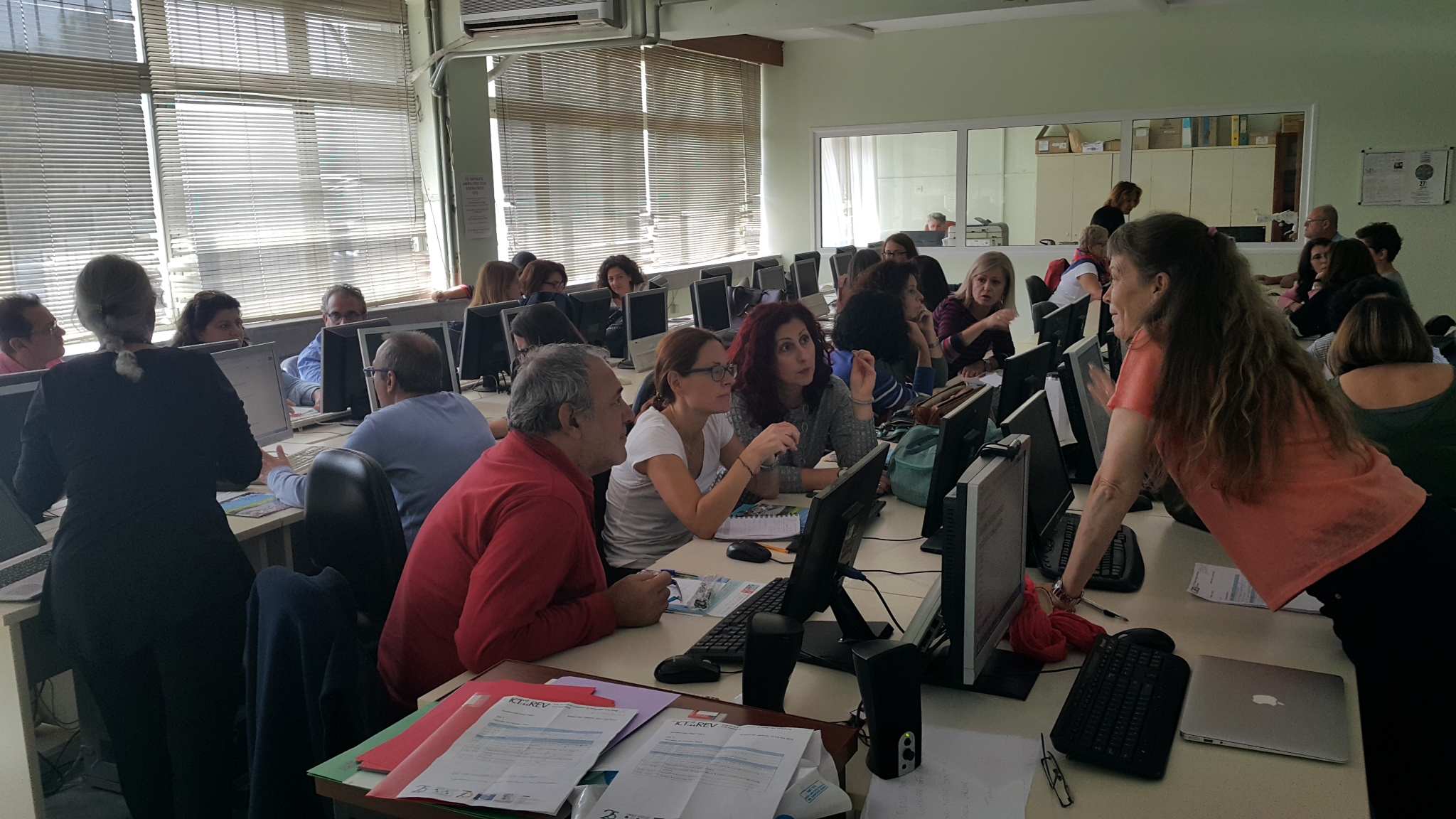
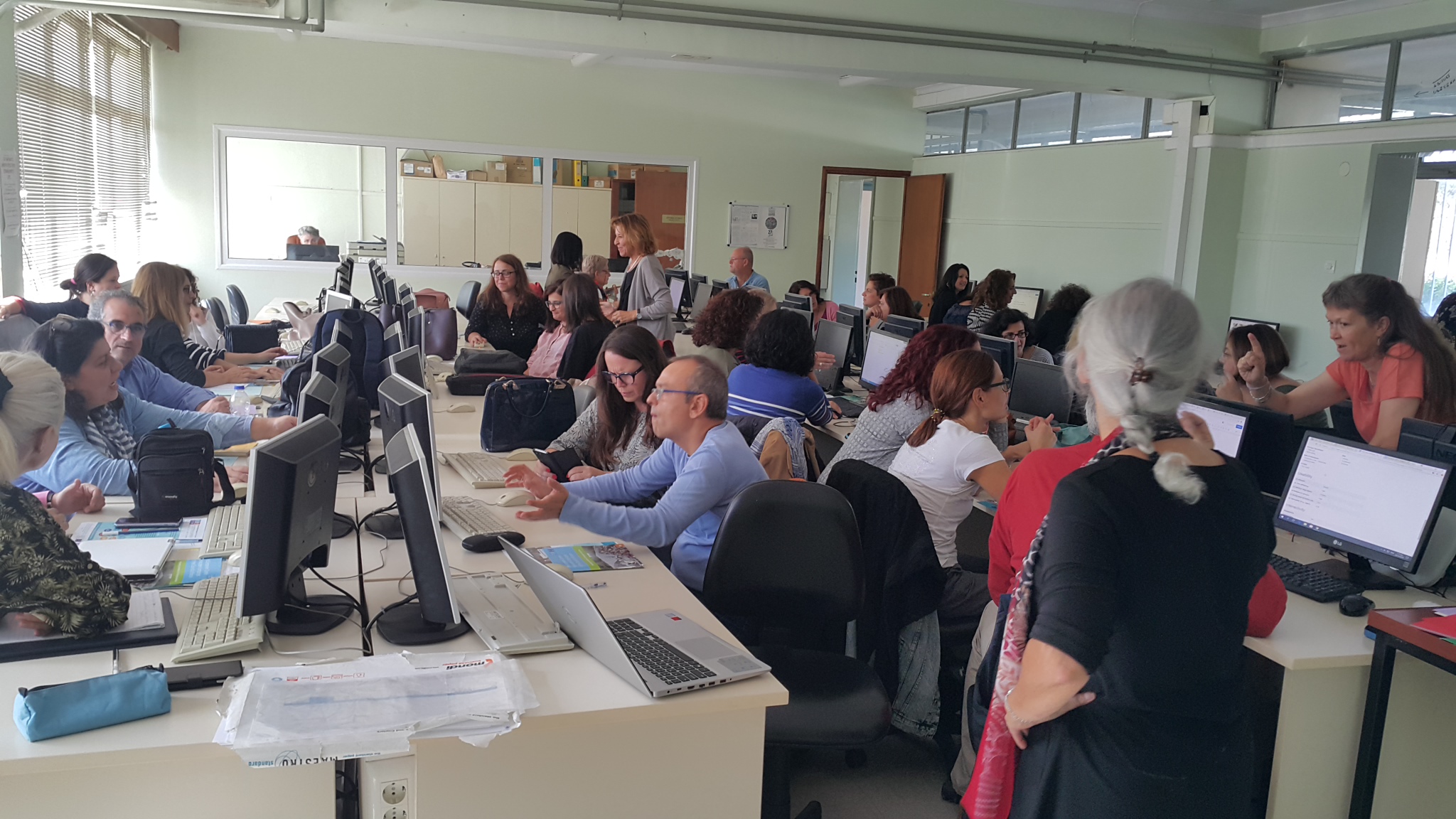
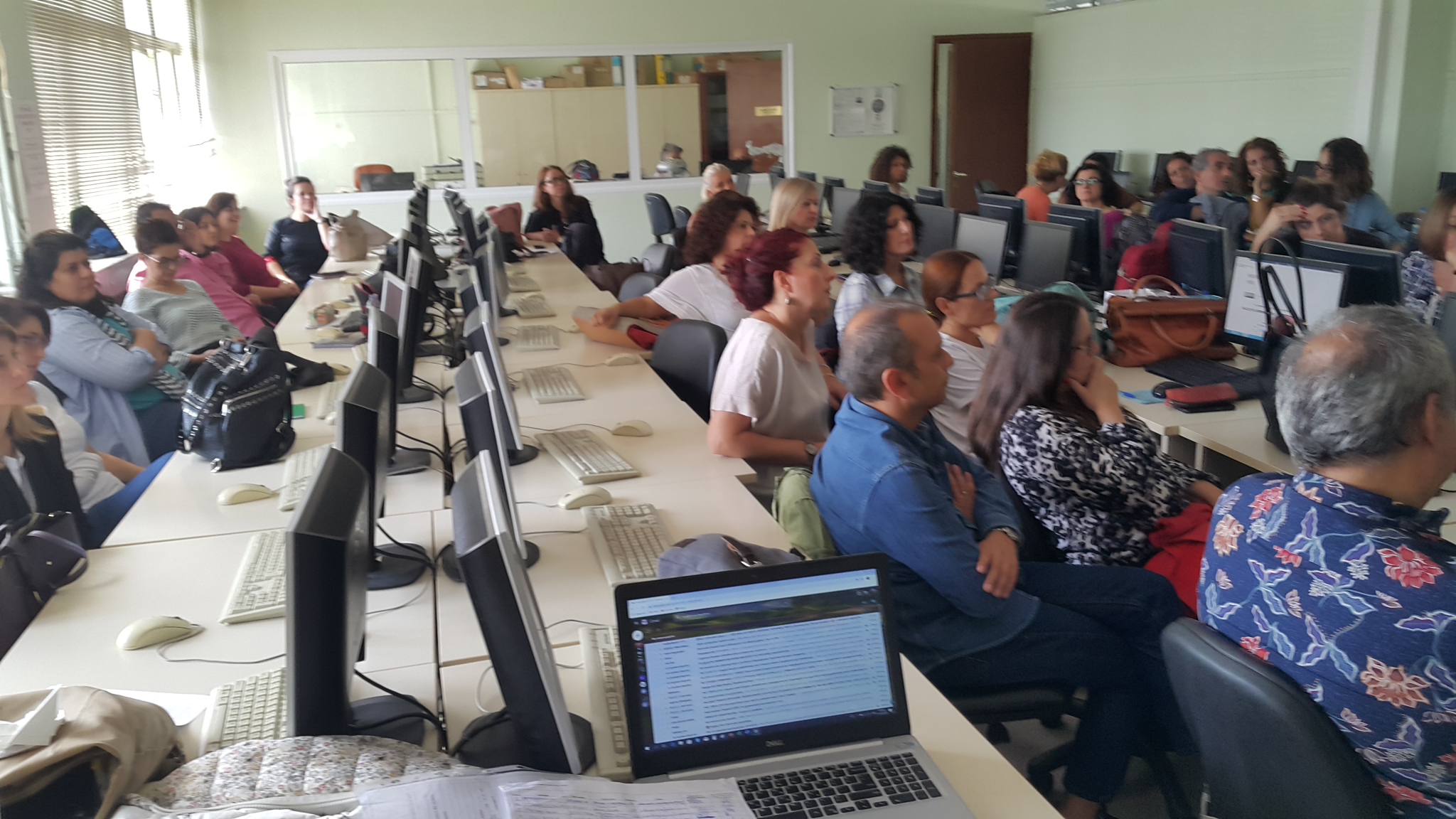

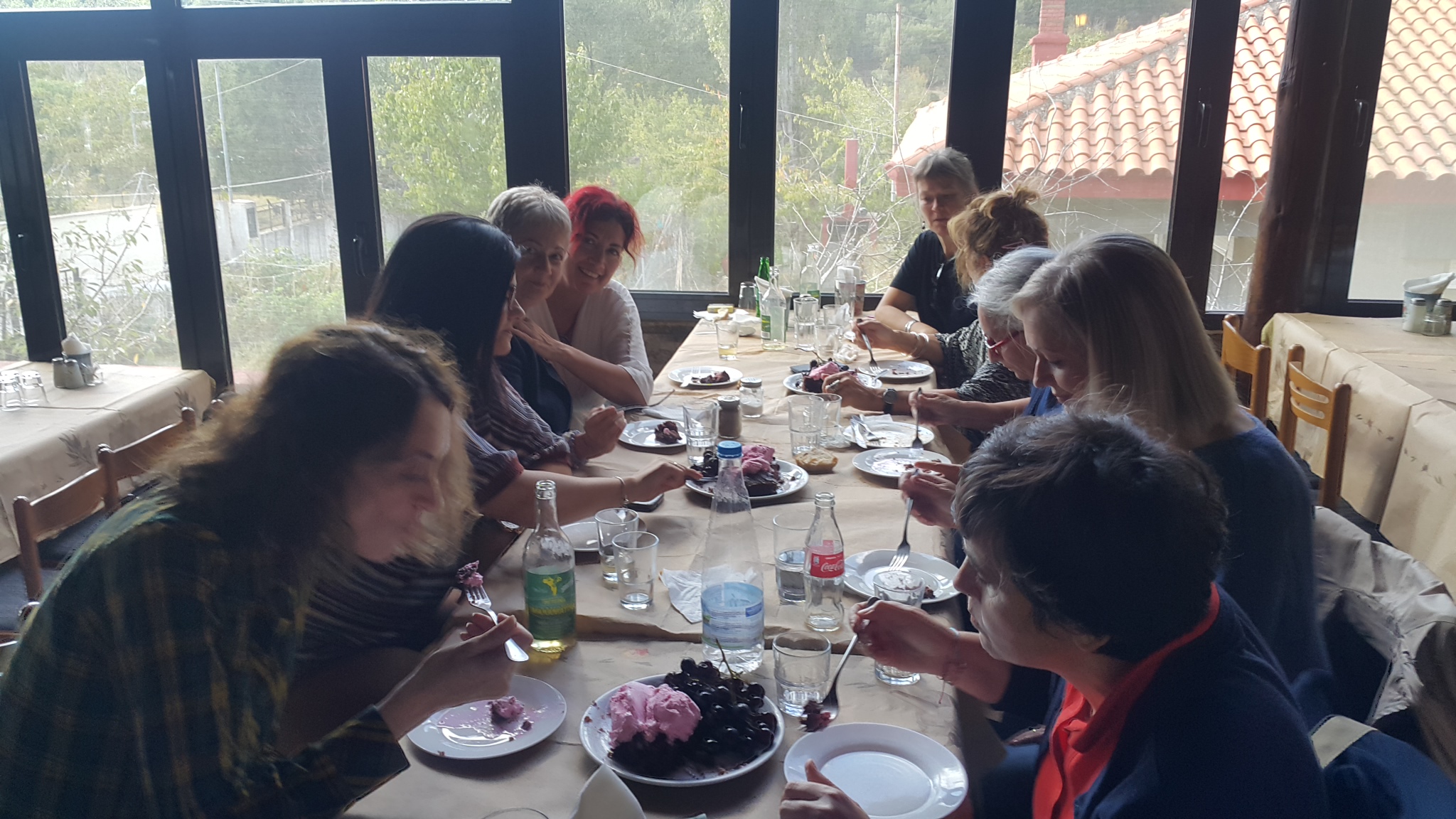
22.08.2018
ECML project "Pro-Sign 2 - Promoting excellence in sign language instruction": Register for the conference in Belgrade | Training programme in Greece | Dissemination activities in Poland and Iran
Belgrade Conference
The final preparations are being done now for the ProSign / efsli October conference in Belgrade. It is still possible to register, so please do so as soon as possible in order to gain insights into the newest developments of Sign Language Teaching and Pedagogy! The preliminary programme is available also on the website.
Greece embraces CEFR for sign language teaching
More than 25 Deaf GSL teachers and teachers-to-be from all over Greece have actively enrolled in the training program for CEFR levels in the teaching of sign languages. Added to these are 7 hearing staff and interpreters of sign language schools that need to be familiar with these concepts / methodology. Since 23rd July they have been studying the CEFR material made available in GSL and Greek, and have started uploading signed exercises according to CEFR on our platform, to be monitored between Chrissostomos Papaspirou, Galini Sapountzaky, the Association of GSL-tutors and discussed with all of the participants in a workshop between 20-26 August 2018. ECML ProSign 2 Expert Team members Christian Rathmann and Beppie van den Bogaerde are involved in the program.
Dissemination of CEFR for Sign Languages
Christian Rathmann (Coordinator of Pro-Sign 2) gave one of three talks at a conference in Tabriz, Iran in early August which was organised by the Deaf Iranian NGO Cooperation Network. This talk focused on the importance of teaching Sign Language as L2 for the implementation of UNCPRD and introduced the competency levels of CEFR for Sign Languages.
At the upcoming SIGN9 conference at the University of Warsaw on 22-25 August 2018 next (see http://sign9.uw.edu.pl/en/), Thomas Geissler and Christian Rathmann are going to share current work on "CEFR-based Sign Language Assessment: A Multistage Procedure and Error Analysis".
The Pro-Sign 2 project team:
Christian Rathmann (coordinator), Tobias Haug, Lorraine Leeson, Beppie van den Bogaerde
29.06.2020
Supporting Multilingual Classrooms: ECML national training workshop (20 - 21 February 2020, Athens, Greece)
Local organiser: Maria Nezi, 1st Regional Centre of Educational Planning in the Regional Directorate of Primary and Secondary Education of Attica, Greece
ECML experts: Chantal Muller, Belgium; Catherine Carré-Karlinger, Austria
Participants: 30 (teacher educators)
Programme
“33 educational coordinators, responsible for the training of all language teachers (foreign language teachers and teachers of the language of schooling) from 8 Regional Centres of Educational Planning in Greece (Attica, Thessaly, Peloponnese, Crete, Western Greece, South Aegean) attended the Supporting Multilingual Classrooms (SMC) workshop on 20 -21 February 2020, held at the Intercultural Gymnasium of Athens. The two-day workshop was hosted by the Greek Ministry of Education and funded by the EU Commission and the ECML (European Centre for Modern Languages).
In recent years, the number of refugees and migrants in Greece has increased greatly. As a consequence, most of the schools in Attica as well as in other Regions of Greece are coping with a heterogeneous/multicultural student population.
Creating an inclusive school environment in which all languages are valued was the main theme of the workshop. Participants explored tools to improve the quality of language teaching and support the development of plurilingual competences for all learners in multilingual classes.
As a result of the event a Moodle platform will be set up to build a network of the workshop participants for mutual support and for a blended learning training programme. A 16-page brochure summarizing the content of the workshop is also to be published.”
Maria Nezi, local organiser, 27 March 2020
ECML project website: Supporting multilingual classrooms – EU-ECML cooperation agreement 2019-2020 "Innovative methodologies and assessment in language learning"
05.03.2018
Setting the stage for 2018 training workshops in 9 ECML member states
On 2 March 2018 fifteen local organisers from Armenia, Bosnia and Herzegovina, the Czech Republic, Germany, Greece, Norway, Poland, Slovenia and “the former Yugoslav Republic of Macedonia” met ECML expert teams to prepare national training events in the areas of Plurilingual education (“FREPA - Plurilingual and intercultural competences: descriptors and teaching materials”) and Online technology (“ICT-rev - Use of ICT in support of language teaching and learning”).
These events are examples of the ECML offer of Training and Consultancy for member states - bilateral support responding to specific national priorities whereby previously successful ECML project teams share their expertise with national authorities and local experts to devise and implement in-country activities, tailored to the particular context and target audience.
A big thank you to national organisers and expert teams for their support and cooperation in preparing the delivery of 8 ICT-REV and 4 FREPA training activities for professionals in language education in these nine countries.
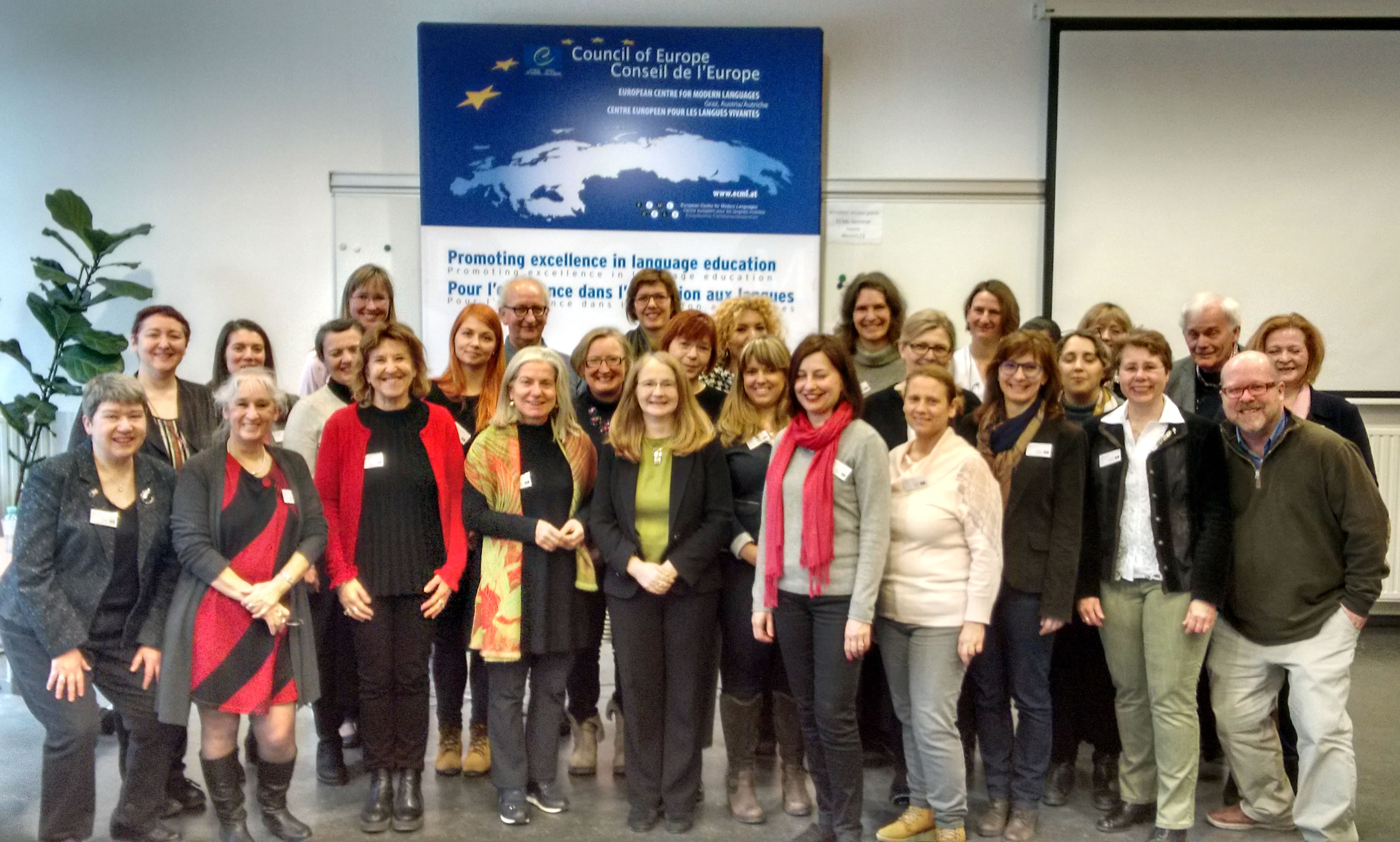
30.11.2017
Action research communities for language teachers: ARC presentation at the Collaborative Action Research Network (CARN) annual conference at the University of Crete, 20-22 October 2017
Two members of the ECML’s Action research communities for language teachers (ARC) team from Austria and the United Kingdom attended the annual CARN conference at the University of Crete, Greece in October 2017 and presented on the latest developments in the ARC project.
We set out the aims and objectives of the project to conference participants who were mostly representatives from tertiary education from across Europe and beyond although there were also some local school teachers and students from Greek universities. We reported on the progress of all our language teachers and teacher educators from ECML countries who have been conducting collaborative action research projects in language teaching contexts across national and linguistic boundaries. The projects seemed to generate significant interest among members of our audience who also raised relevant and thought-provoking questions for us to consider as we move forward to the next phase of ARC.
The conference was a highly enjoyable event in a wonderful setting and provided us with a great opportunity to engage with action researchers from education and health working in a diverse range of contexts.
The project team:
Christine Lechner (project coordinator, Austria), Angela Gallagher-Brett (United Kingdom), Tita Mihaiu (Romania), Brynhildur Anna Ragnarsdóttir (Iceland)
24.05.2018
EOL keynote and workshop "Strengthening synergies between practice, research and policy" (Agrinio, Greece, 11 May 2018)
The Greek Ministry for Education and Religious Affairs requested the expertise of the European Centre for Modern Languages (ECML) to support the implementation of important changes in policy and practice in language education, as it moves towards a more holistic approach which responds to constantly evolving needs of both learners and teachers. The current political and social context of migration together with the impact of electronic communication have resulted in increased linguistic and cultural diversity in Greek classrooms.
Organised by the Regional Directorate for Primary and Secondary Education in Western Greece and held in the music school of Agrinio, the conference included three other short presentations and a workshop which brought together 37 professionals: 25 teachers, 5 headmasters, 5 school advisors, Mr BARIS (Head of Scientific and Pedagogical Guidance for Primary Education at the Regional Directorate of Education in Western Greece) and Mr GIANNOPOULOS (Regional Director for Primary and Secondary Education in Western Greece).
The event was perfectly organised and coordinated by Ms Olympia TSOLOU.
The request to the ECML goes even further in order:
- “to replace present models which have been developed on the basis of a monolingual ethos of communication and monolingual pedagogical practices, serving ideologies of linguistic and cultural hegemony;
- to foster the development of alternative pedagogic discourses and practices for the teaching and learning of languages aiming at the interlinguistic and intercultural communication competences of European citizens;
- to ensure that all involved in the programme appreciate their responsibility for providing their students with opportunities to learn a variety of languages, and also for providing opportunities for alternative education and training of language-teaching instructors;
- to provide foreign language education for students in primary and secondary schools an education that must be linked with the teaching of their own mother tongue through a critical model of multilingual literacy”.
The systemic nature of the EOL project Learning Environments where modern languages flourish aligns well with the complexity of these issues.
EOL offers a global approach to language matters by considering how objectives for modern languages relate to concerns about the language(s) of schooling and the linguistic components in all curriculum subjects.
EOL proposes a transversal vision and a symbiotic approach to learning languages, teaching languages and teaching content by integrating languages and to managing schools and developing school systems.
This is the reason why the ECML proposed Jonas Erin, project coordinator of EOL, to support the Greek authorities. Jonas’ input at this event also gave him a great opportunity to test tools and resources that are still in development within the EOL project.
The preparation of the seminar was based on the participants’ answers to a questionnaire around their understanding of learning environments and current needs. The results highlighted great interest in the values of the Council of Europe, embodied in the work of the ECML. Moreover, three major issues emerged which show how important it is to develop a systemic approach to language education:
- An urgent social need:
How can foreign language learning become an efficient lever for social inclusion and advancement?
- The need for language learning pathways:
How can a culture of individualized language learning pathways be developed within the perspective of democratic citizenship?
- An issue of professional development:
What contribution can modern languages and European cooperation in education make towards professional development?
These issues were then addressed at the conference via the following three themes:
1. The values underpinning the Council of Europe’s language education policy
The three founding pillars of the Council of Europe - democracy, human rights and rule of law - set the scene for reflection on the specific role of language education and converged in the welcoming message of the Greek authorities on European integration, the video presentation on the Council’s values and the ECML’s activities by Sarah Breslin, Executive Director of the ECML and Jonas ERIN’s keynote - How to strengthen synergies between practice, research and policy?. The presentation of different resources and projects of the ECML helped to give a practical illustration of how language education contributes to these values.
2. Research in the field of plurilingualism
The presentation of research elements in the field of language acquisition was well appreciated: Ms CHRISTOPOULOU spoke about linguistic diversity and plurilingualism, Mr Erin about the factorial model of language acquisition theories (“How to stop the drift away of practice, research and policy”) and Ms TSOLOU concluded on translanguaging.
3. The professional development of actors and structures
Supporting changes in practice and policy by emphasizing plurilingual and intercultural education was at the heart of the seminar: making teachers and head teachers more conscious of the importance of global language awareness (keynote), developing collaborative approaches (workshop), presenting multimodal approaches (presentation of Ms KOTADAKI on Digital Storytelling).
The quest for coherence and convergence when planning language learning pathways was the baseline of the diverse contributions to this seminar.
Participants actively challenged their notions of learning environments, shared ideas and developed new strategies by linking personal, cultural and structural aspects.
Beyond the scientific and conceptual input, the following tools and resources were used and/or presented:
|
Resources of the EOL project
|
Other resources and projects
|
- The EOL matrix (EOL-E-10)
- The TrEOL tool (EOL-E-25)
- The matrix questions
- The memos (EOL-E-25)
- The profiling test (EOL-E-25)
- The action plan (EOL-E-13)
- The implementation strategies (EOL-E-26)
- Examples of projects (EOL-E-27)
|
|
The impact and global reach of the ECML
The participants’ feedback was positive:
- The numerous questions on how to contribute to the ECML activities (in workshops or as project member) reveal a great interest in the ECML in general;
- The will of many participants to register on the EOL working platform and to join the network of partner schools is a very encouraging;
- The requests for bilateral cooperation between the Greek and the French school system illustrates the indirect mediation function of the ECML.
The TrEOL tool and its symbiotic approach to language matters were particularly well appreciated. The participants set up alternative strategies to implement a global approach to language education and identified opportunities for transversal cooperation and cross-subject synergies.
Finally Ms TSOLOU’s excellent organisation of the seminar and the amazing welcome shown to the ECML expert, Jonas Erin, are worthy of mention. The hospitality, the value given to the ECML in the introductory words of the Greek authorities (T. BARIS and Κ. GIANNOPOULOS), the strong commitment of school advisors and teachers to a common European education policy are evidence of profound support for the ECML’s work and for the Council of Europe’s values. The excellent example of the Greek welcoming culture should be incorporated into the final proposals of the EOL project, particularly in relation to the impact of incoming mobility on creating learning environments where modern languages flourish.
Programme of the seminar
ECML project website "EOL - Learning environments where modern languages flourish": English - French - German
Photo impressions of the seminar
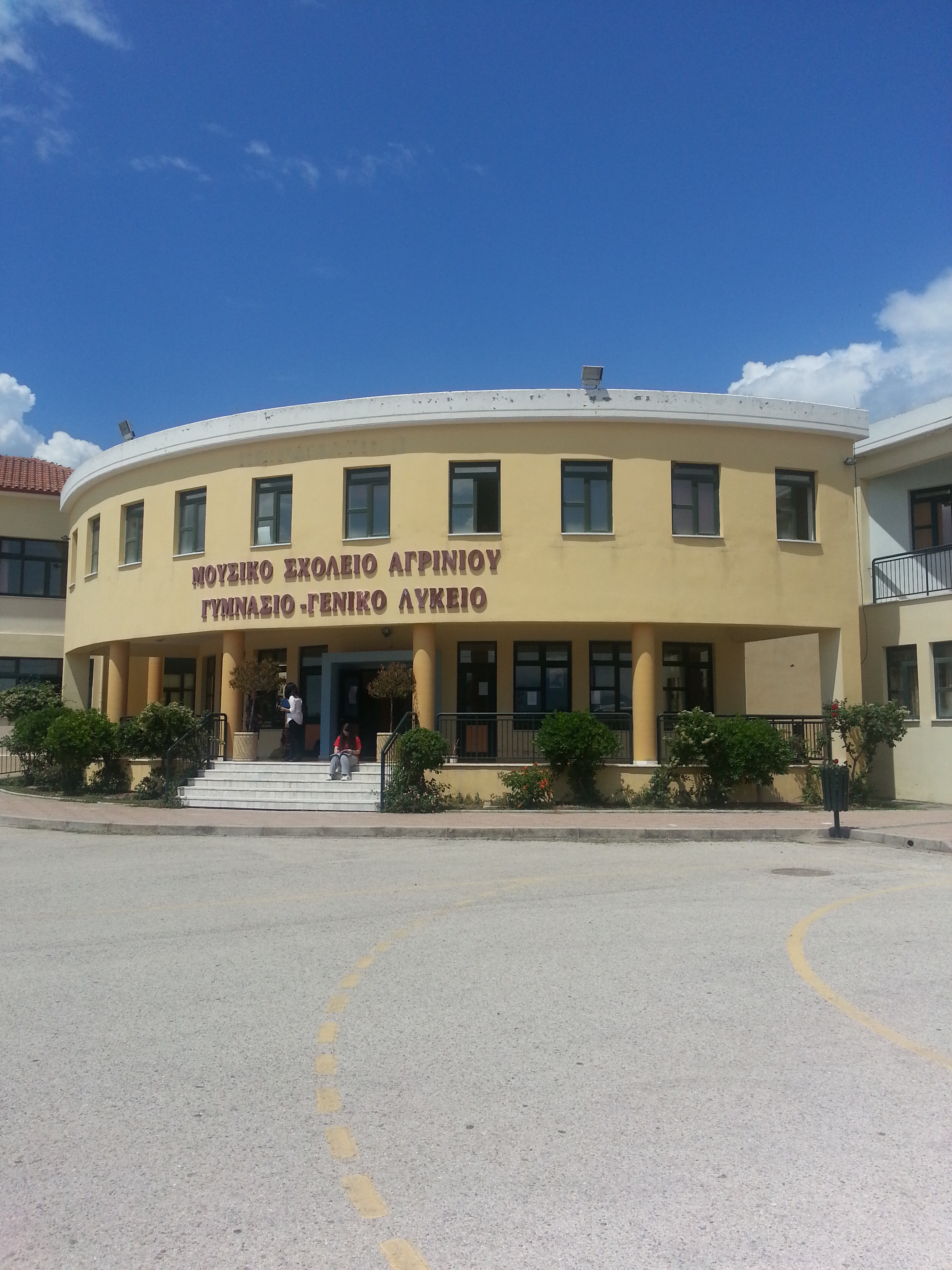
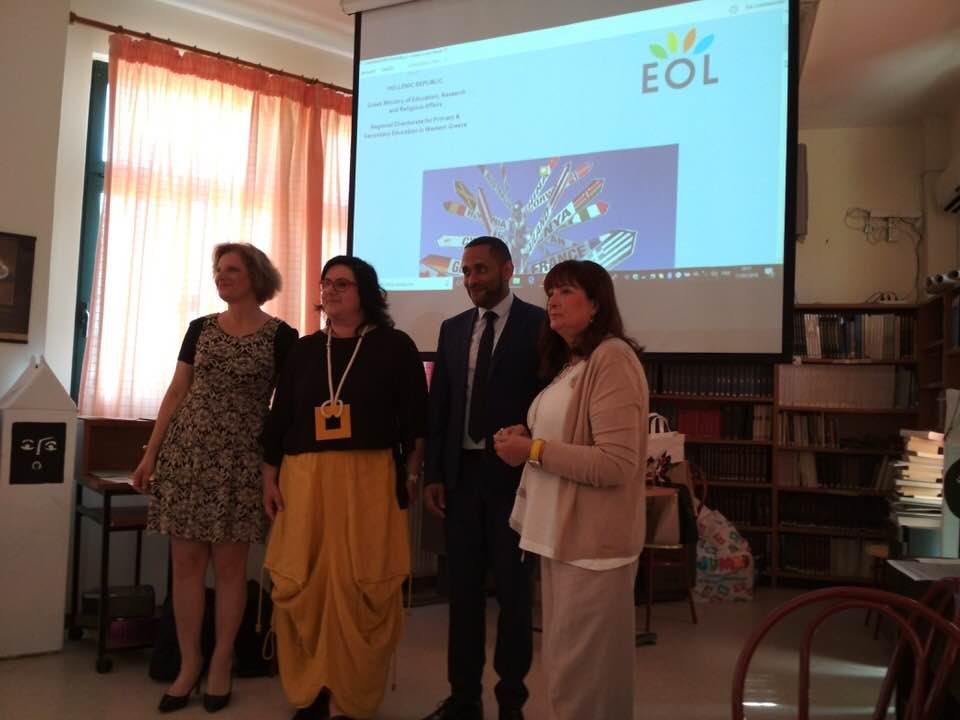
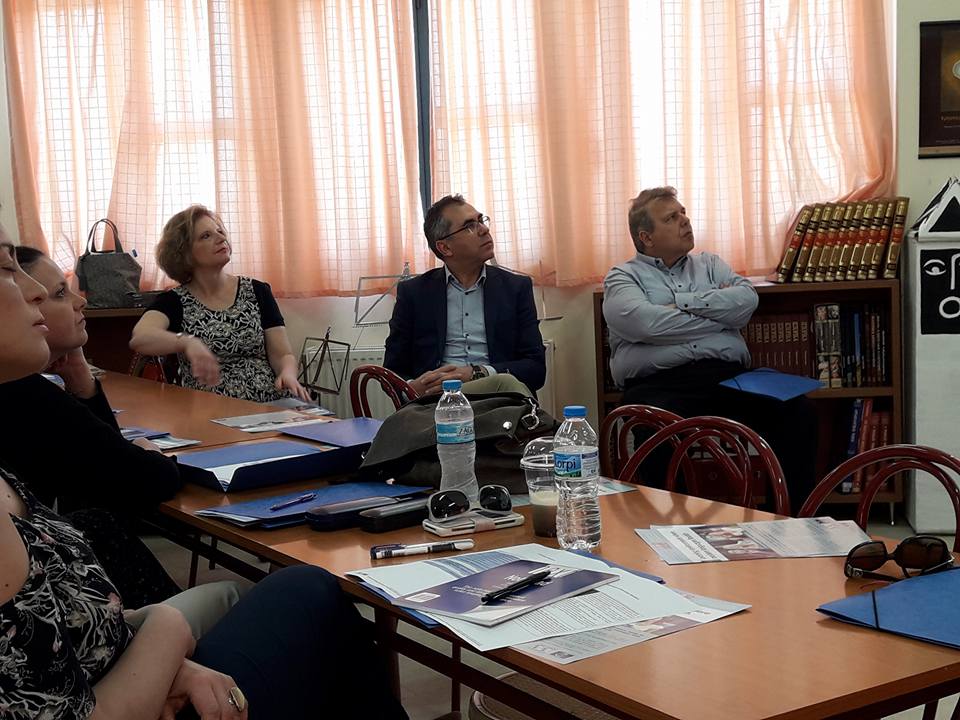
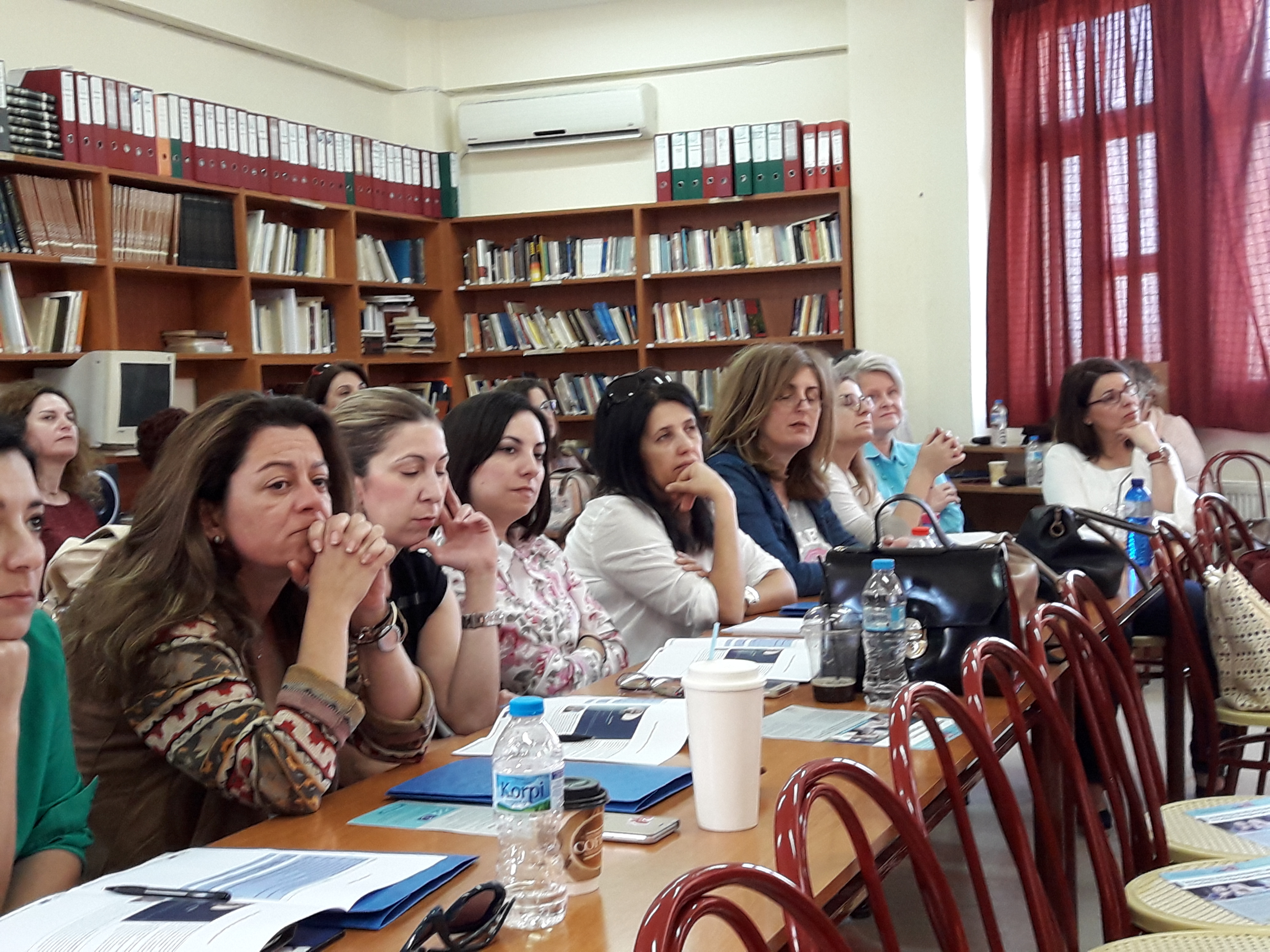
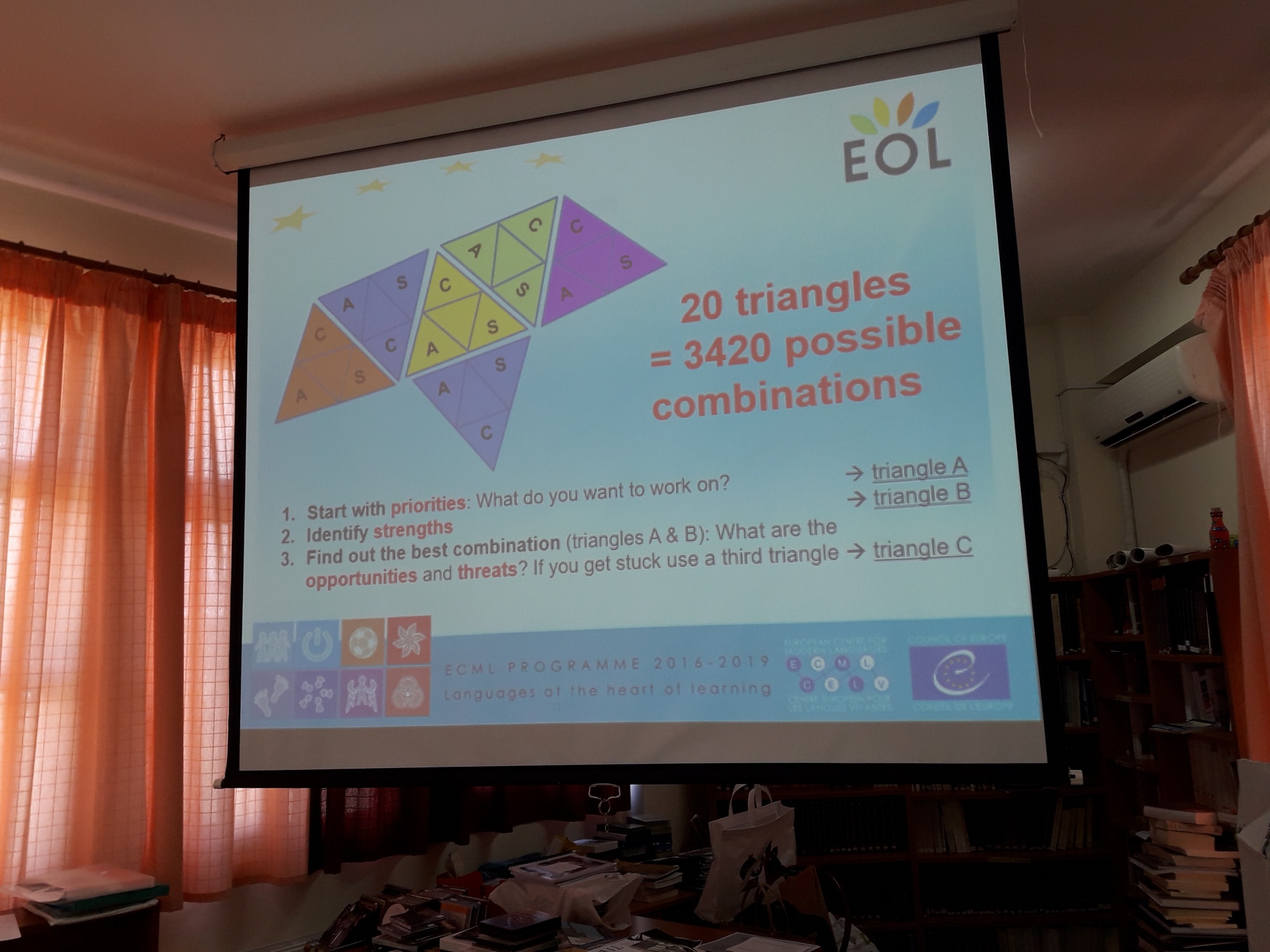
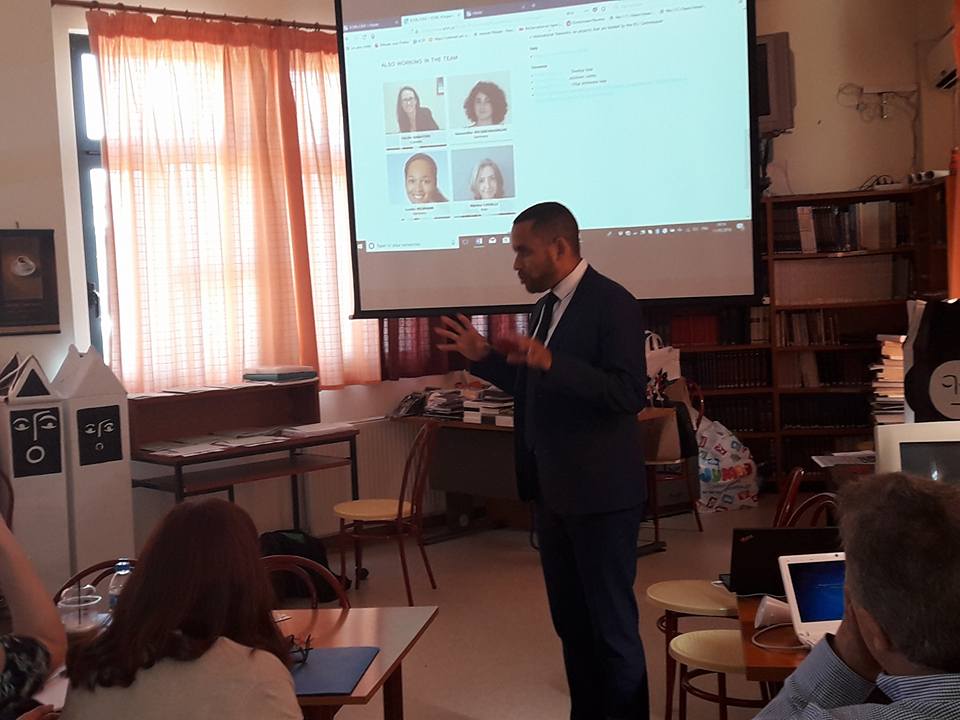
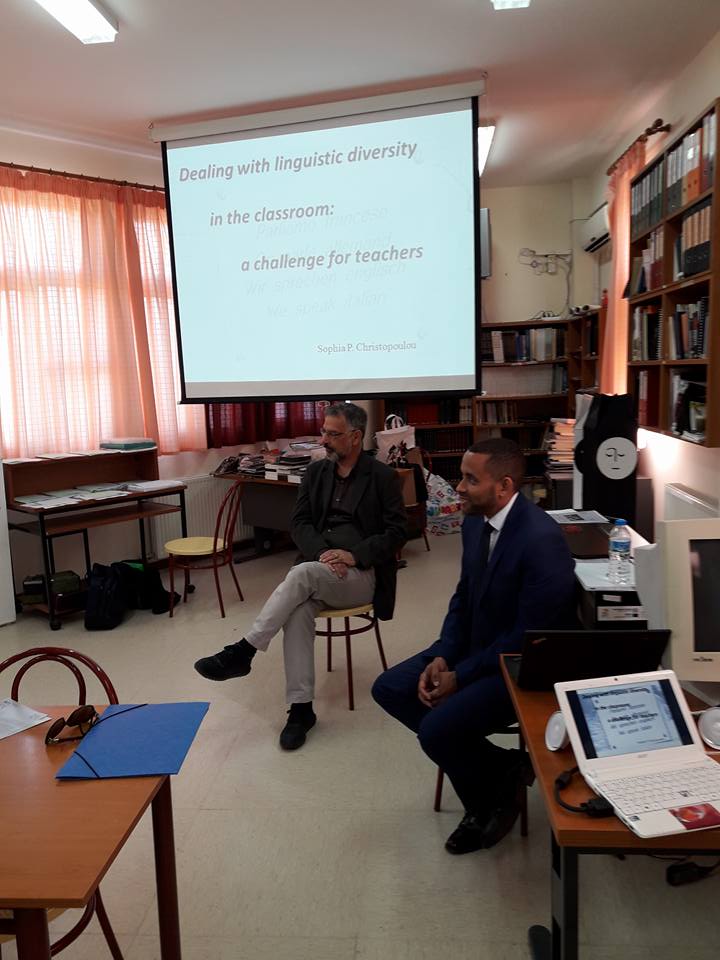
03.11.2016
European Language Gazette : enjoy the latest issue!
The European Language Gazette, the ECML's e-newsletter, provides up-to-date news about the ECML (events, projects, resources), the Language Policy Unit and other relevant sectors of the Council of Europe, as well as our partners. It focuses on national developments in the field of language education in the member states and beyond.
Issue no. 33 (September - October 2016): available in English and in French.
16.06.2017
ECML training and consultancy in Greece: FREPA - A Framework of reference for pluralistic approaches to languages and cultures
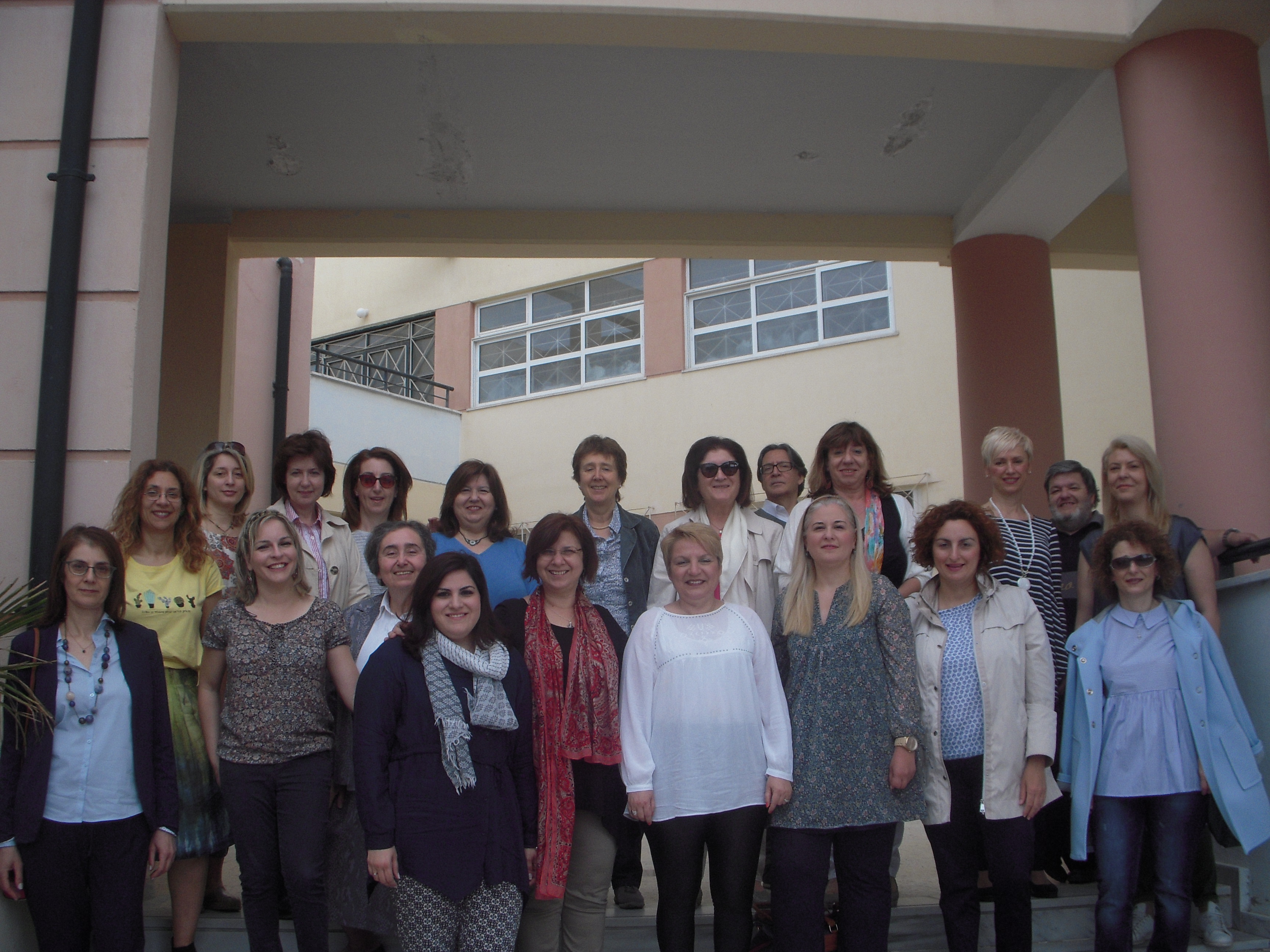 Date: 8-9 May 2017
Date: 8-9 May 2017
Venue: 10th Gymnasio, Kalamaria, Thessaloniki, Greece
Local organiser: Chryssa Laskaridou, Regional Directorate of Primary and Secondary Education Central, Thessaloniki
Participants: 29 school advisors and foreign language teachers in primary education
The ECML workshop gave 29 school advisors and foreign language teachers in primary education the opportunity to become familiar the plurilingual approach and its importance in language teaching and in education, in general. The event also provided information on the descriptors which can be used to design new materials. Although the participants were familiar with the plurilingual approach, the workshop was an excellent opportunity for them to have a hands-on experience in the use of the FREPA descriptors.
This workshop is of interest to all teachers working in primary or secondary education and to the people involved in materials design, curriculum development and language policy.
